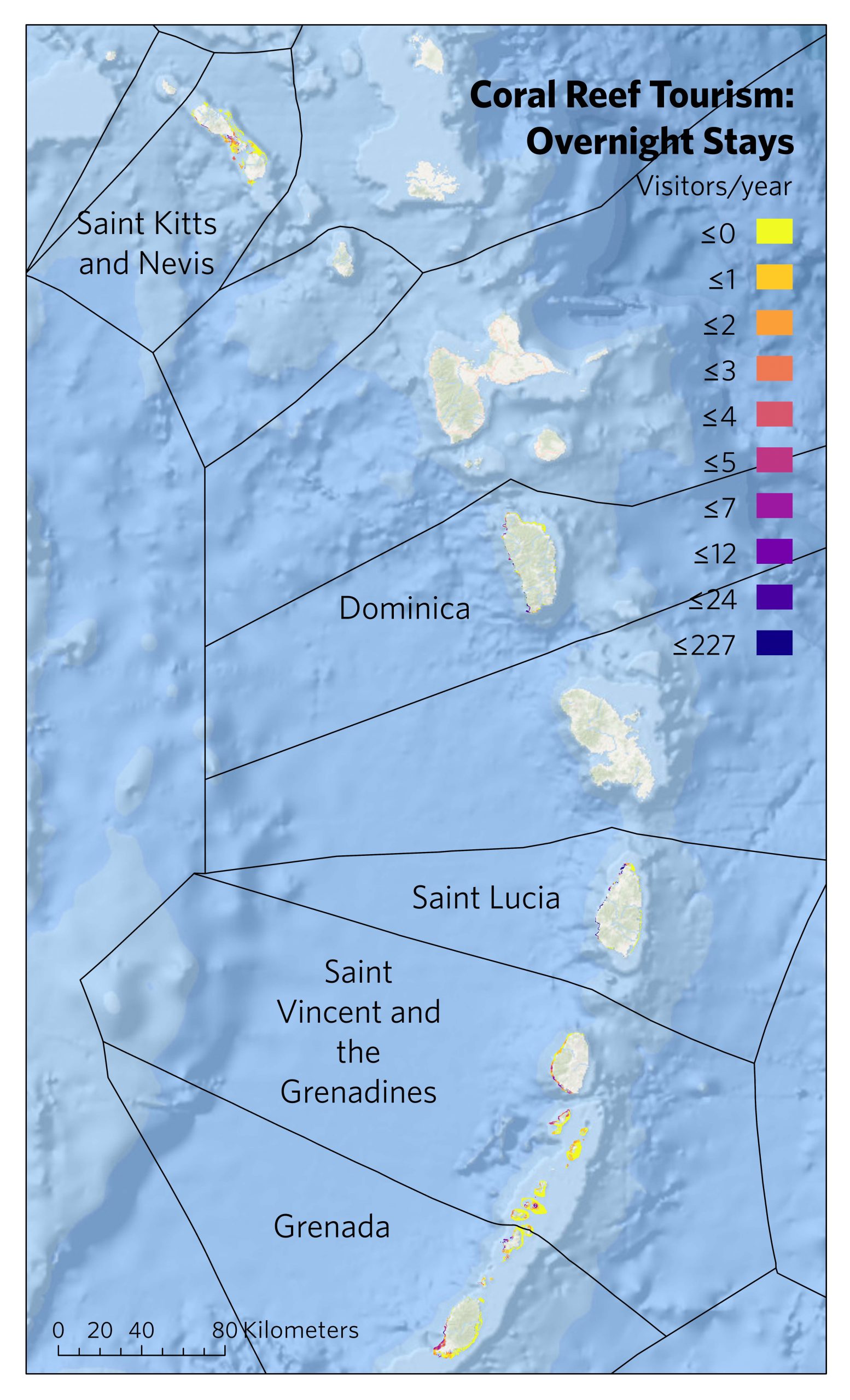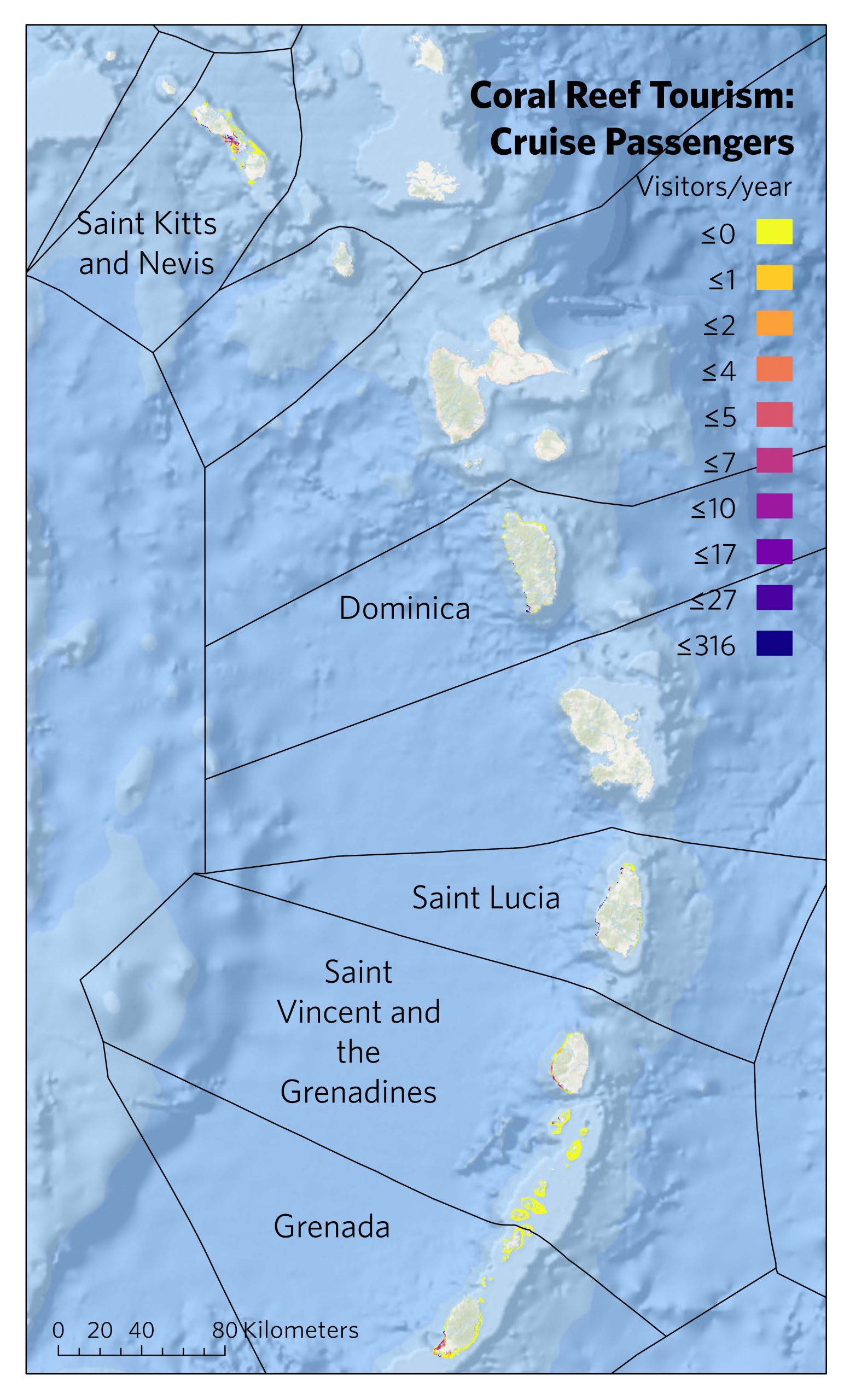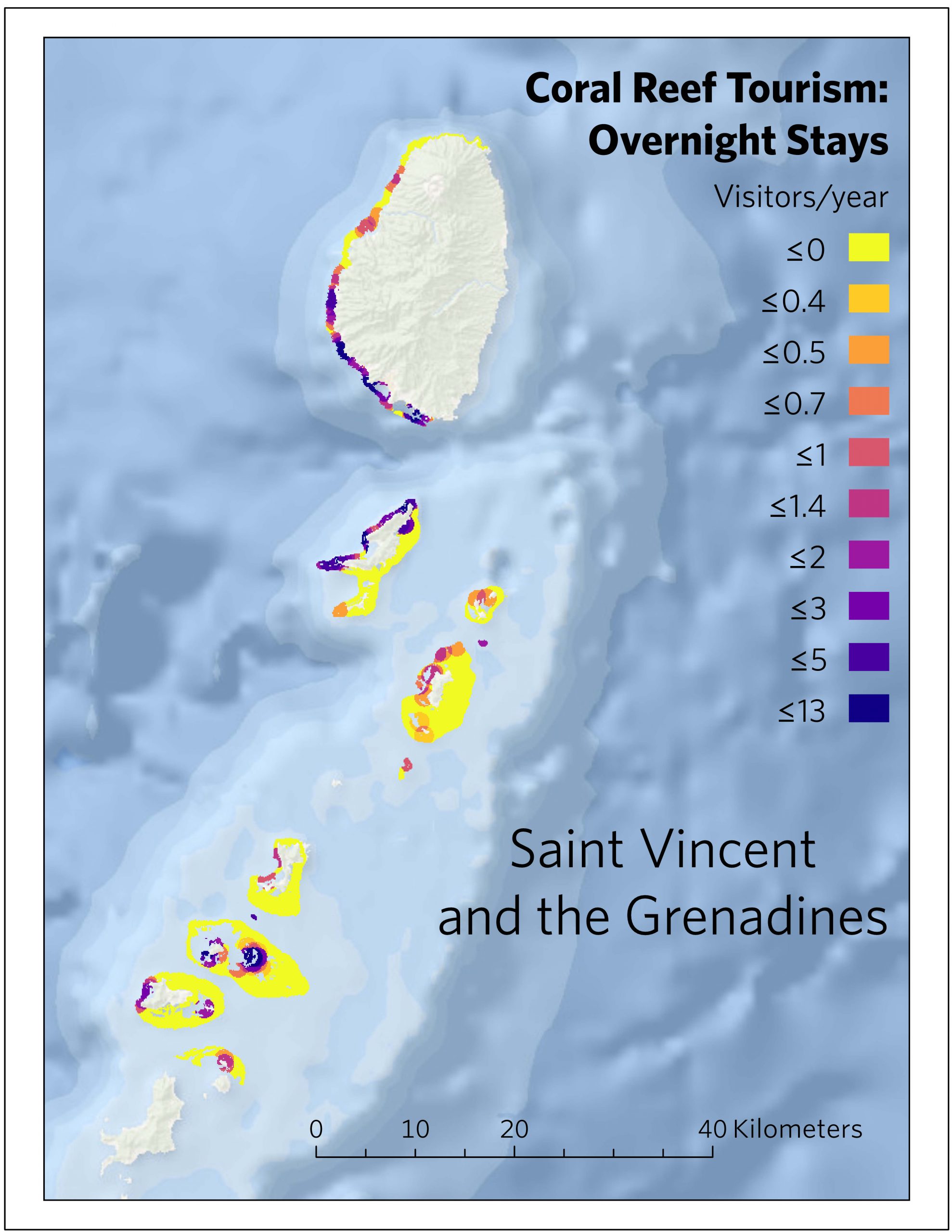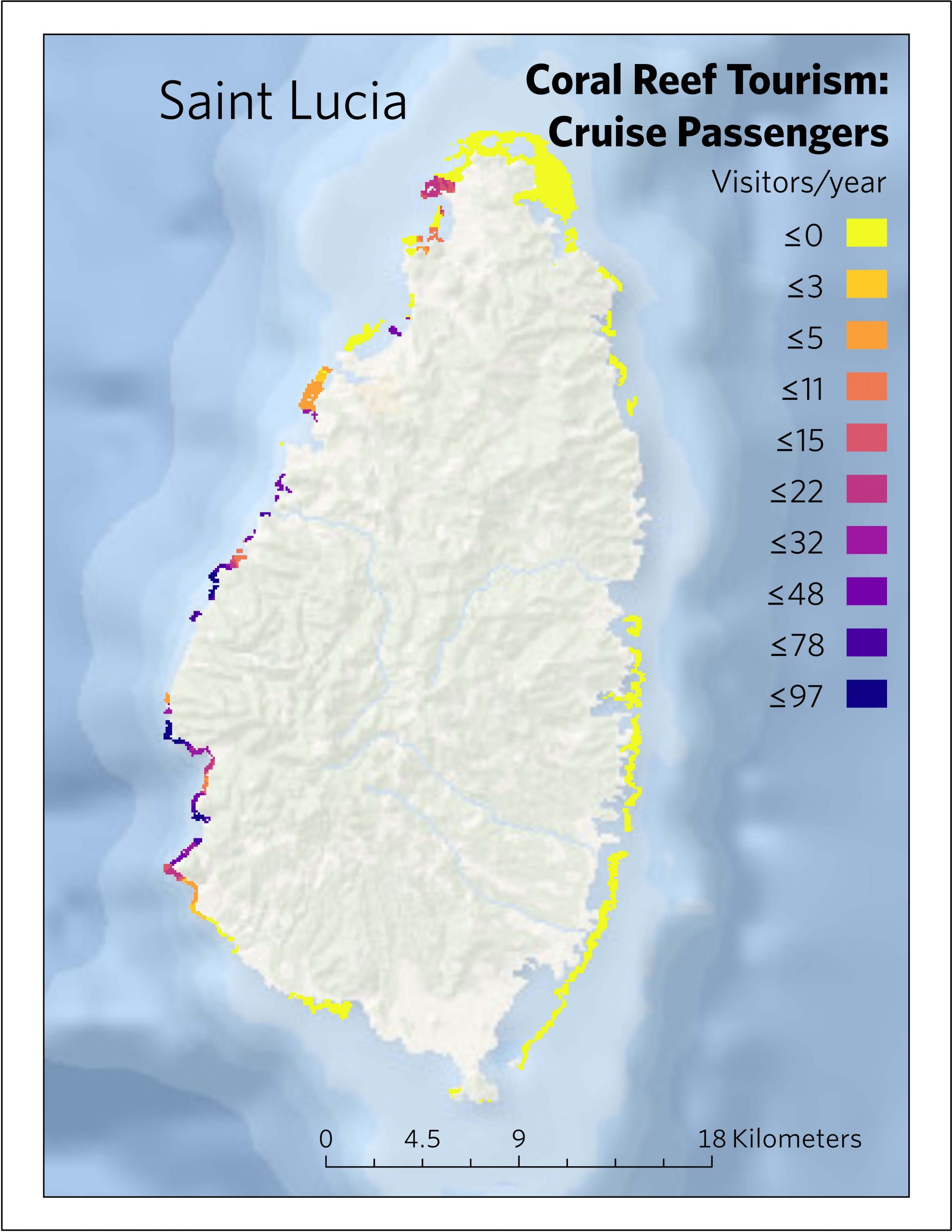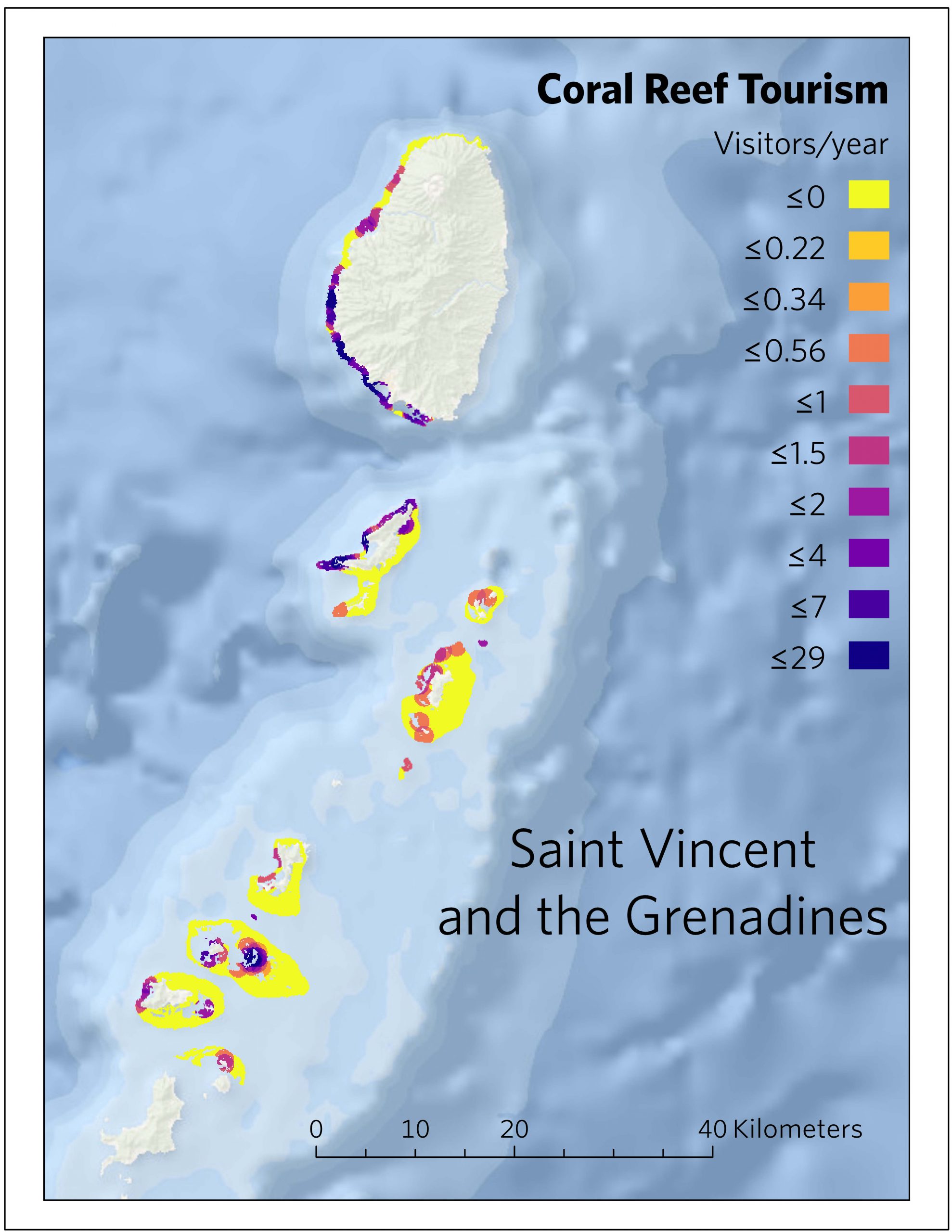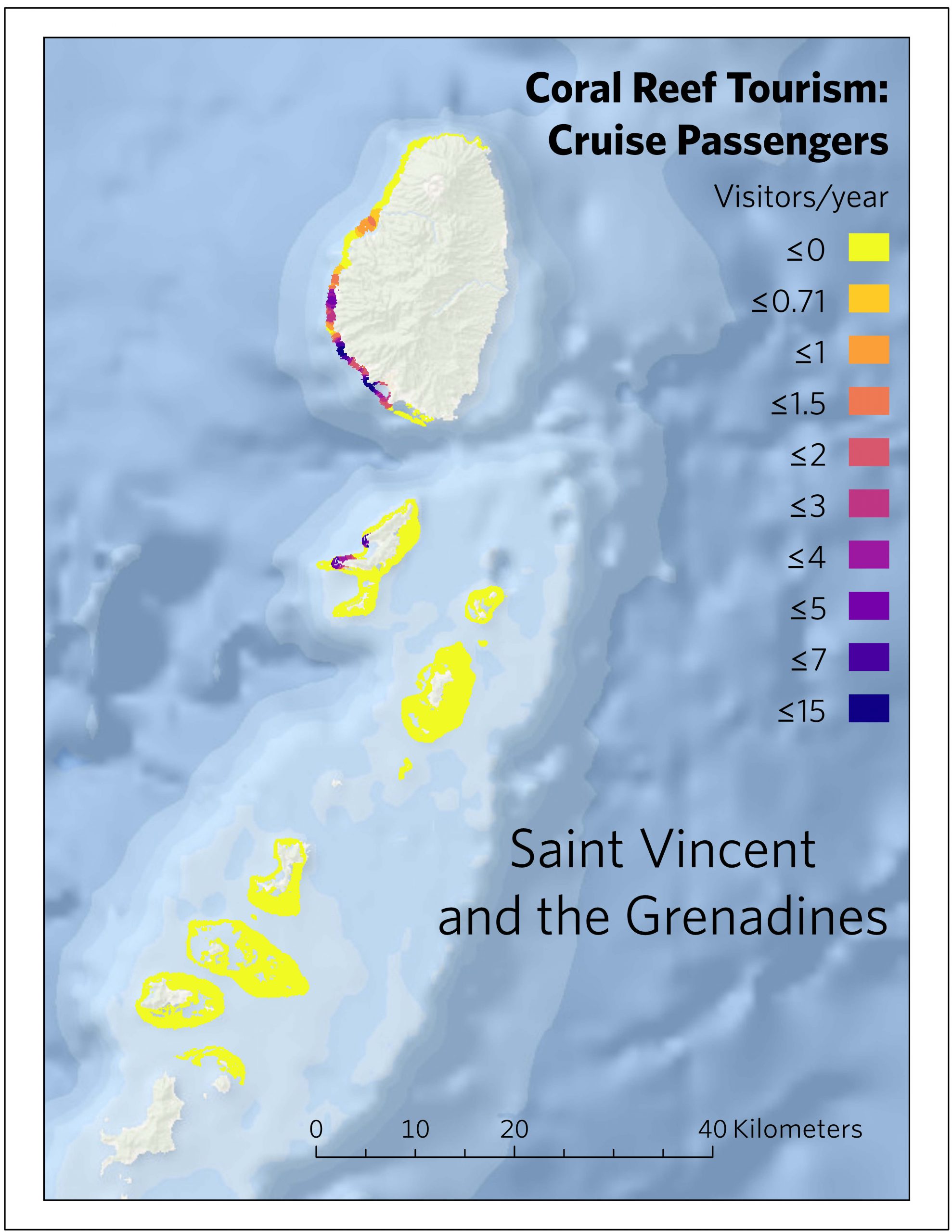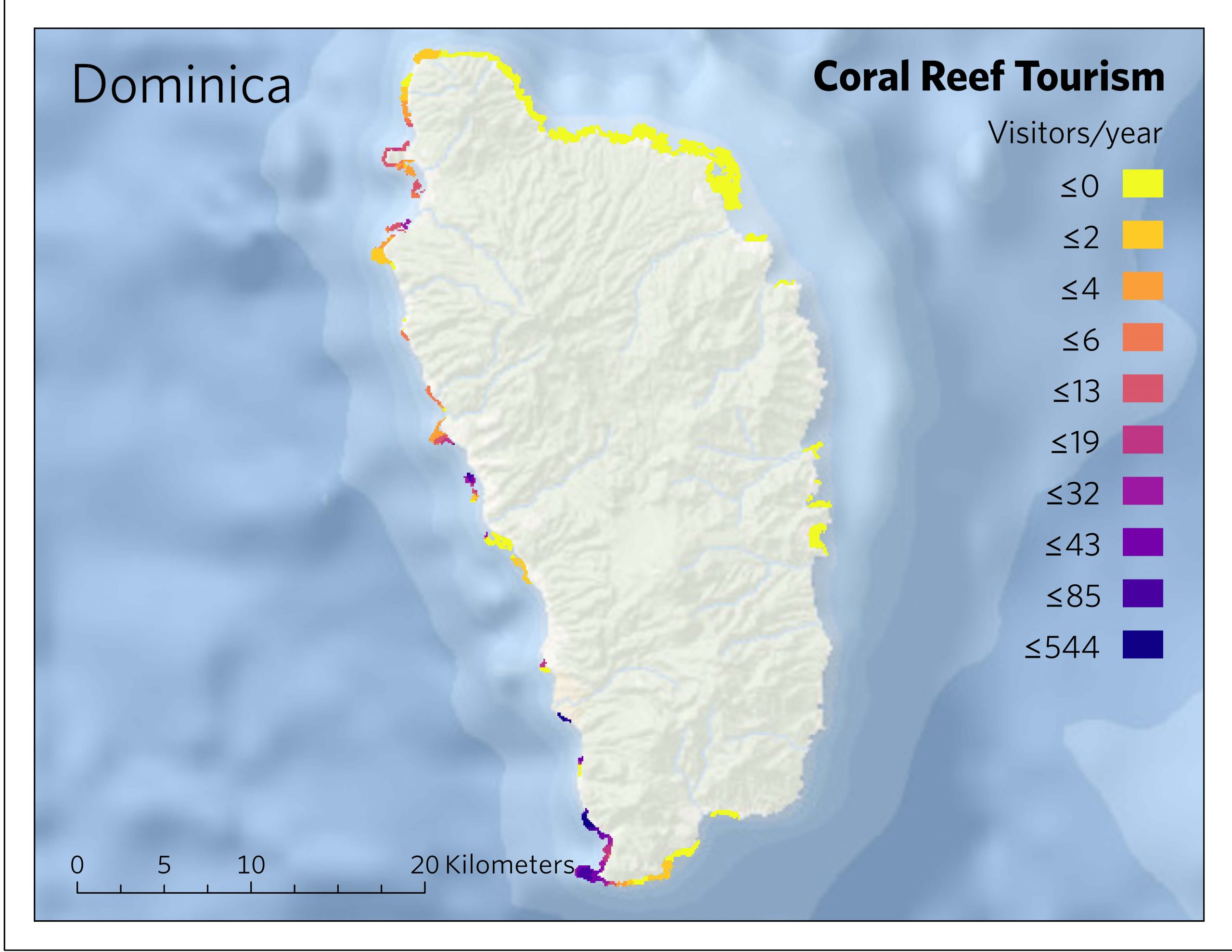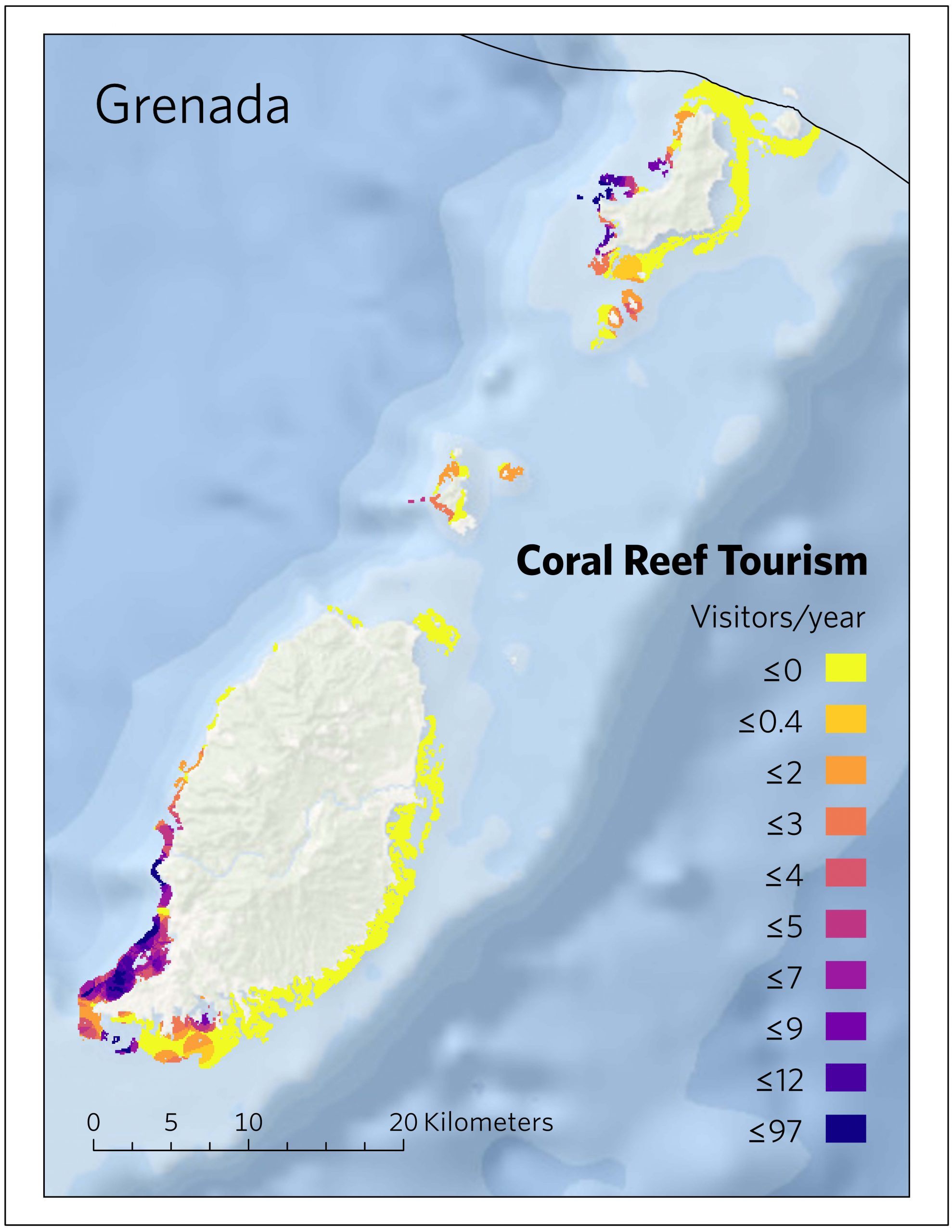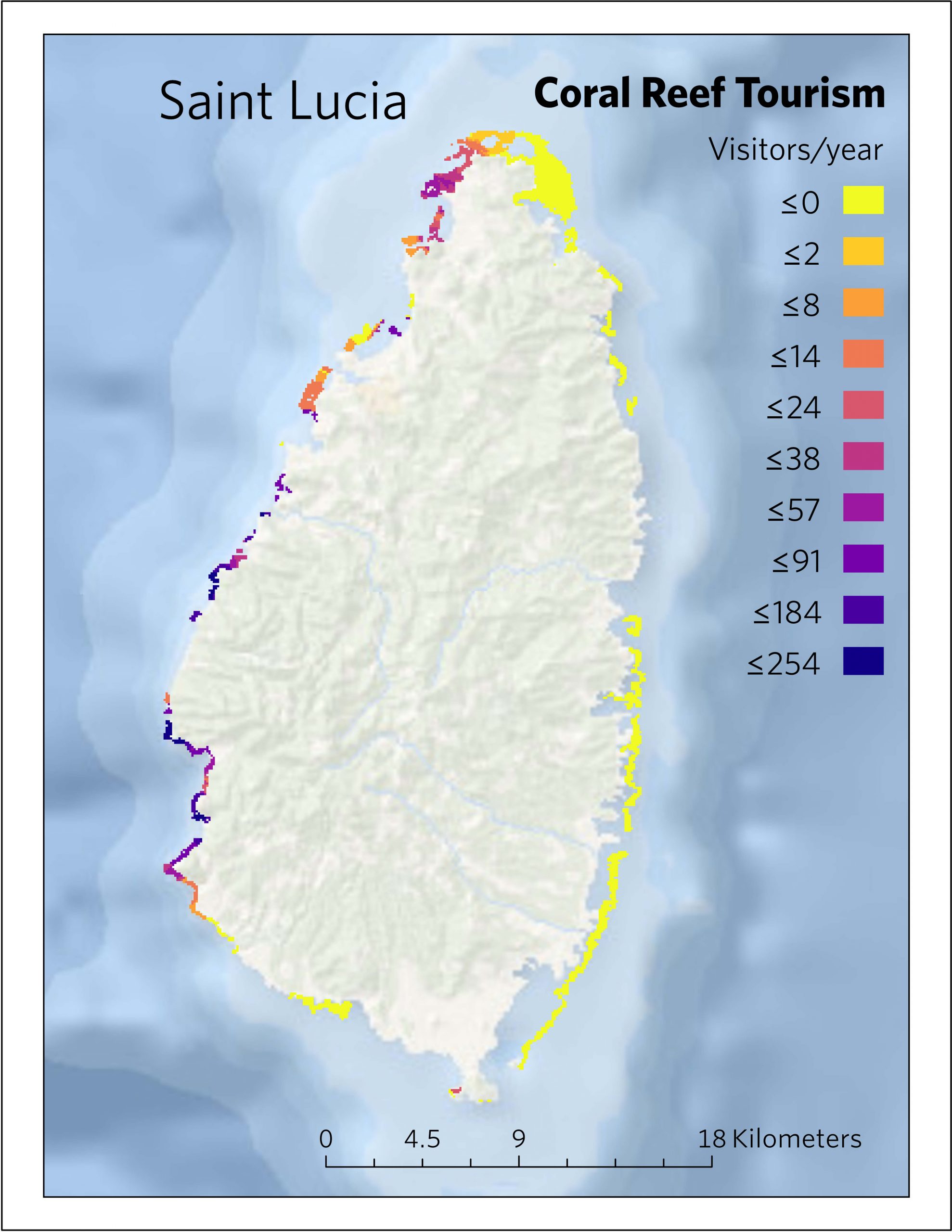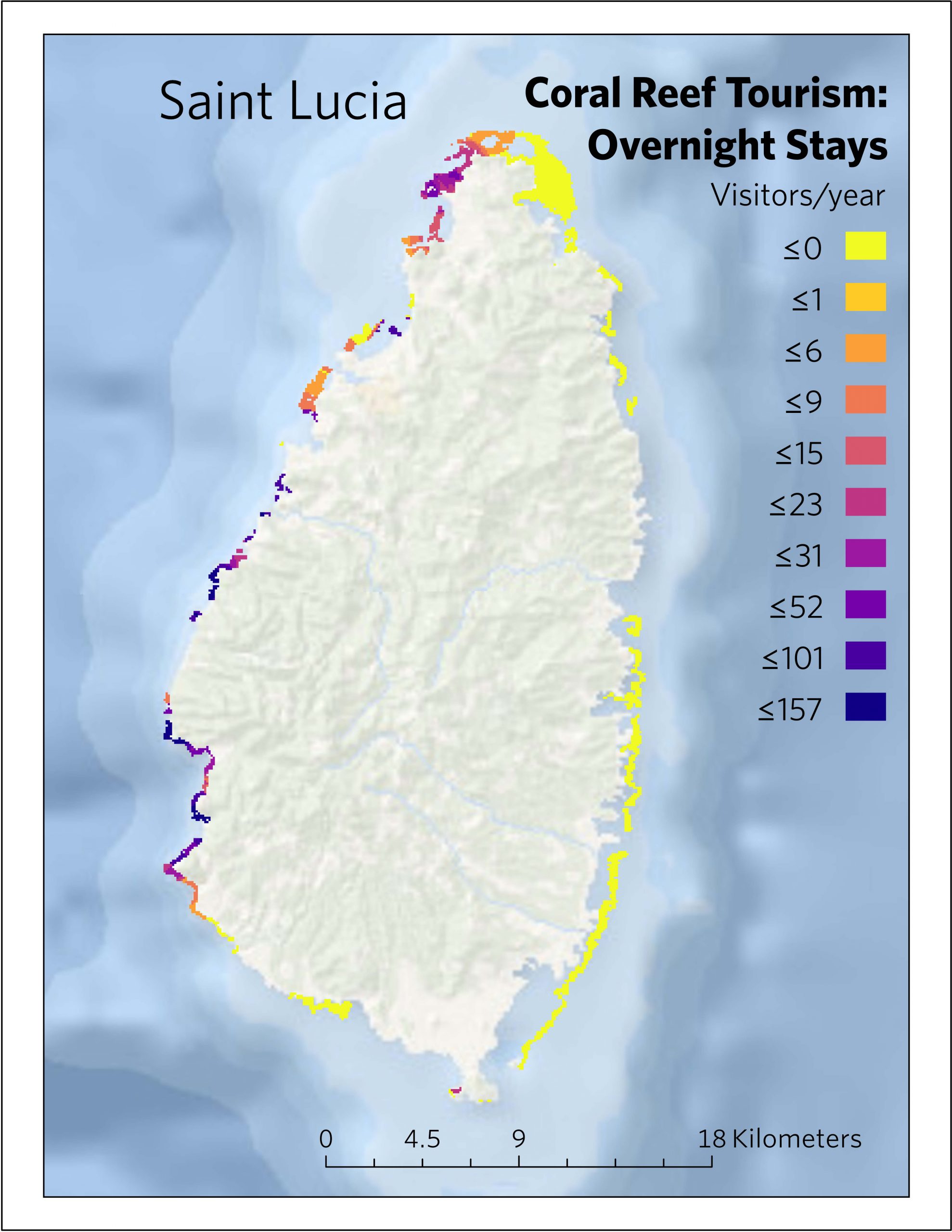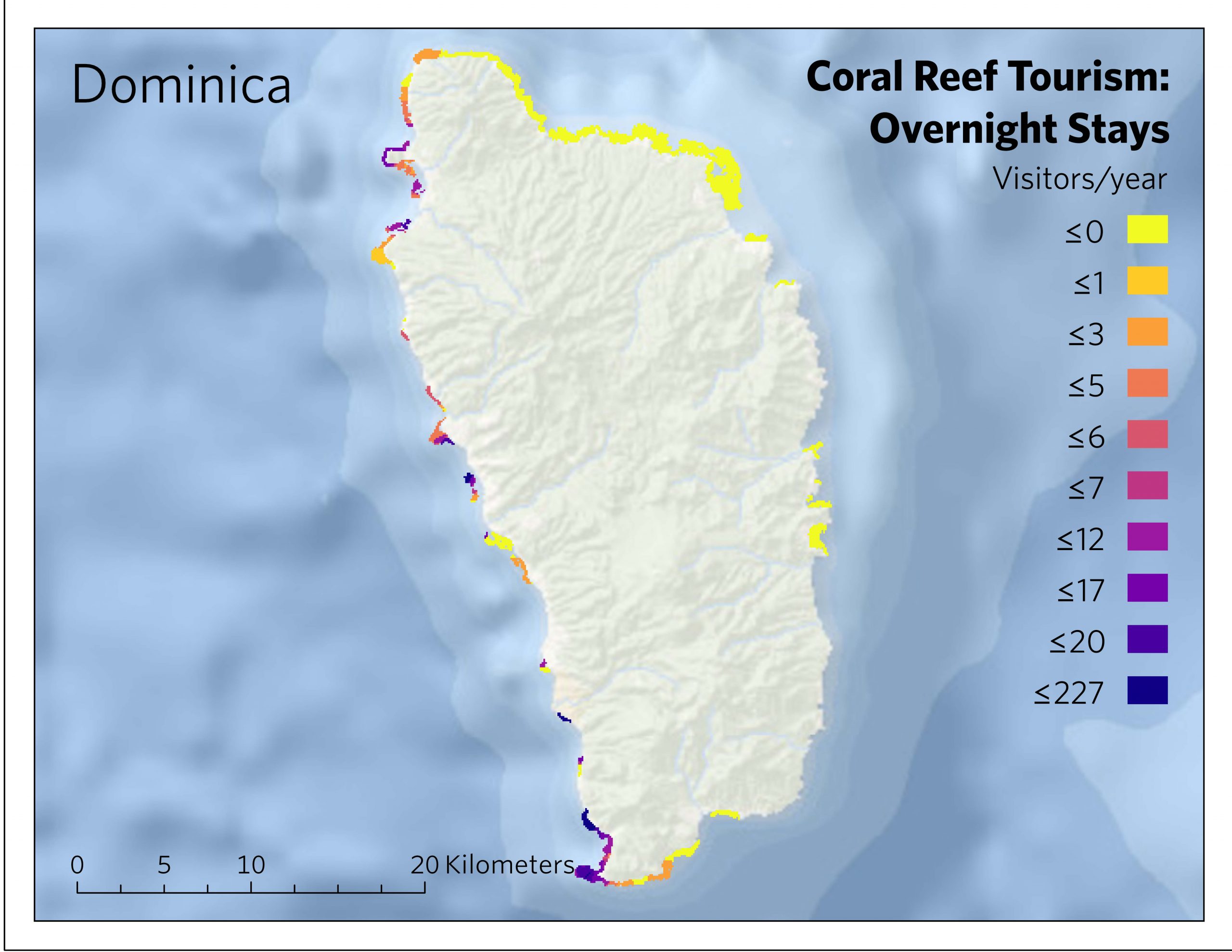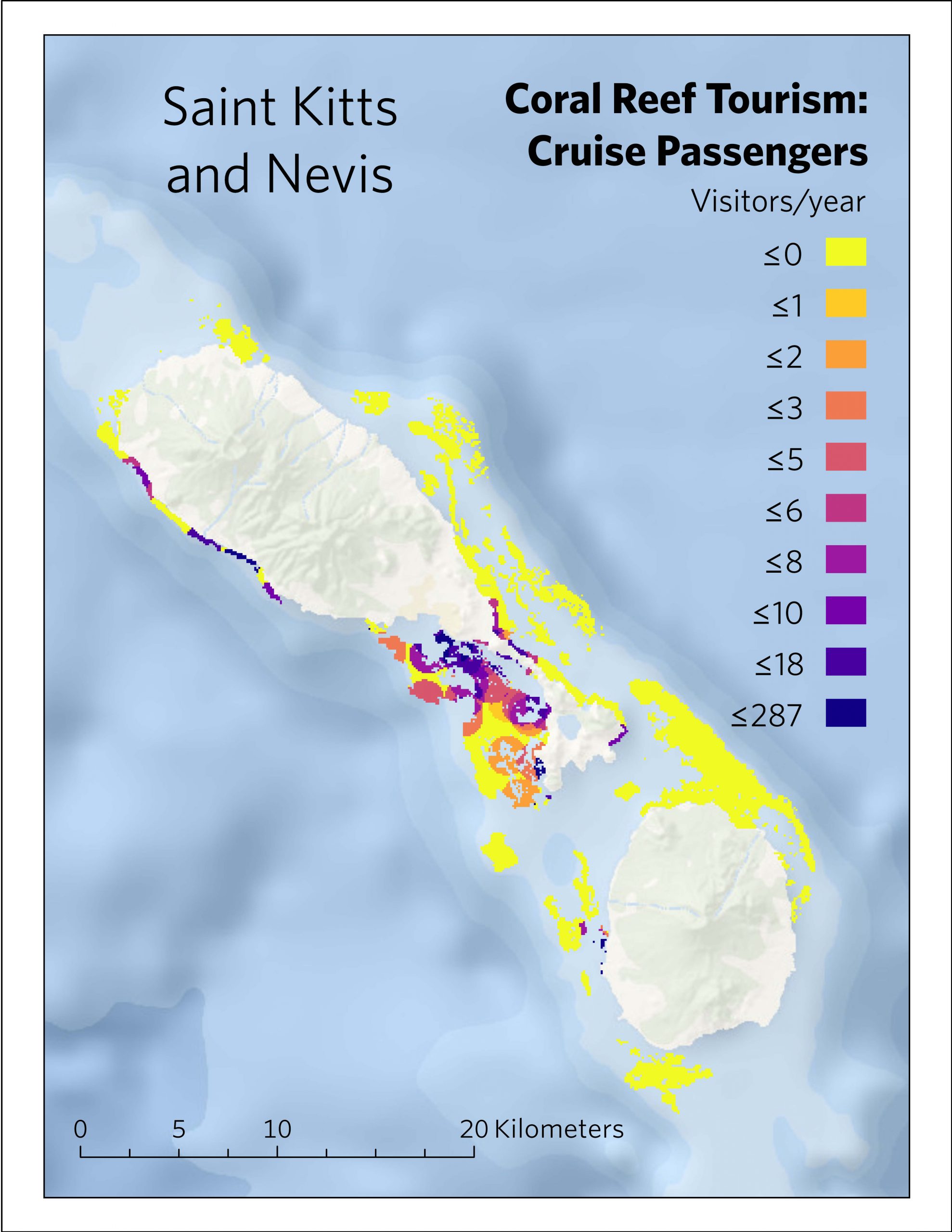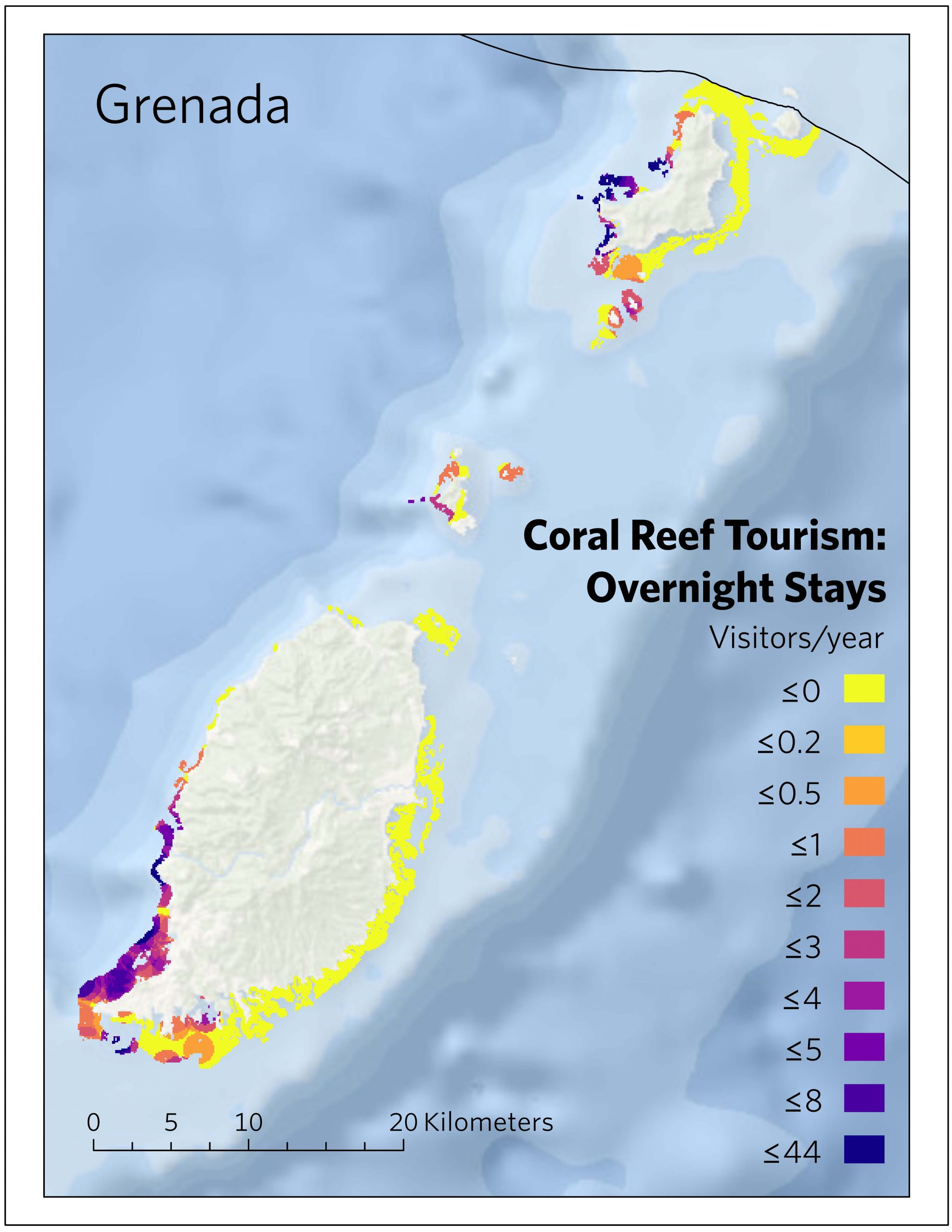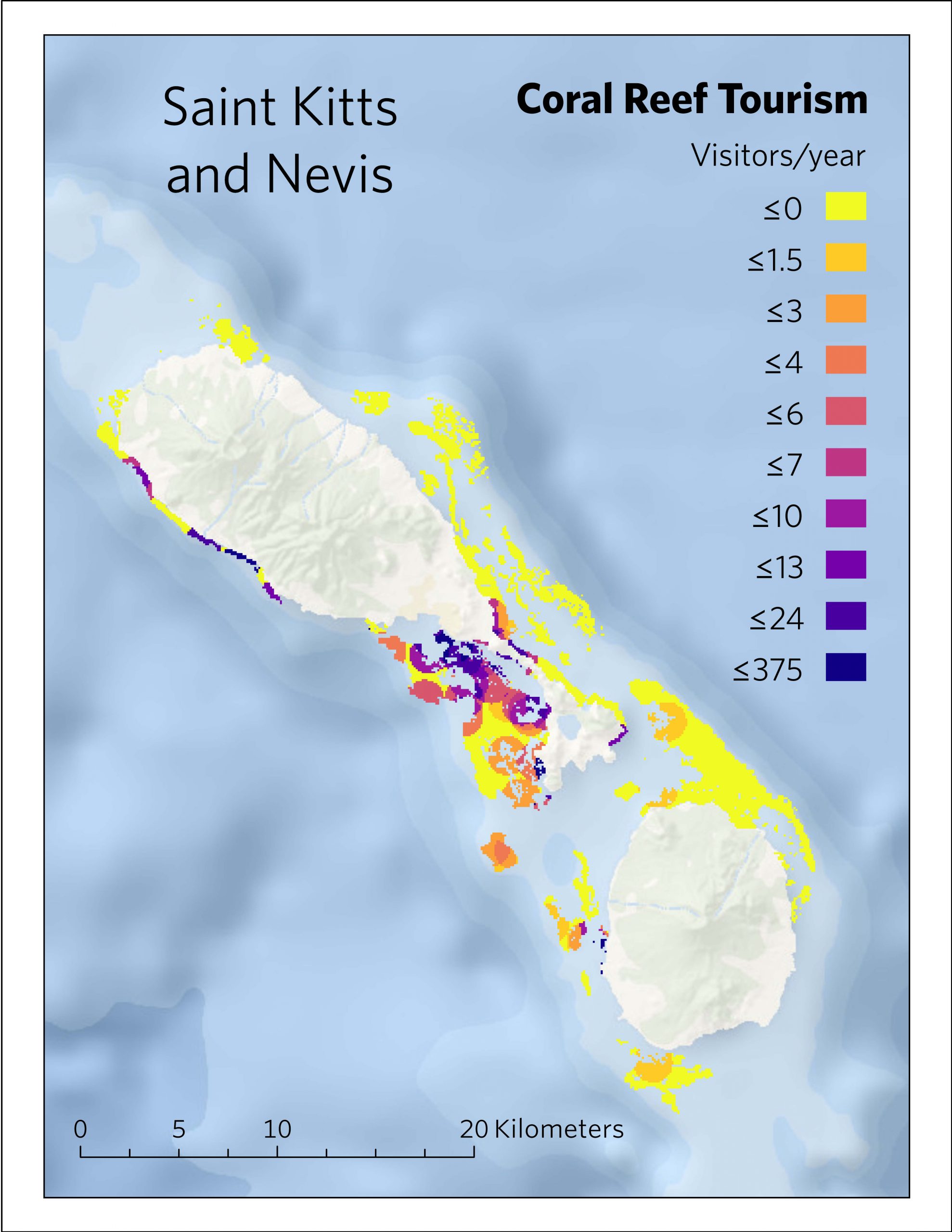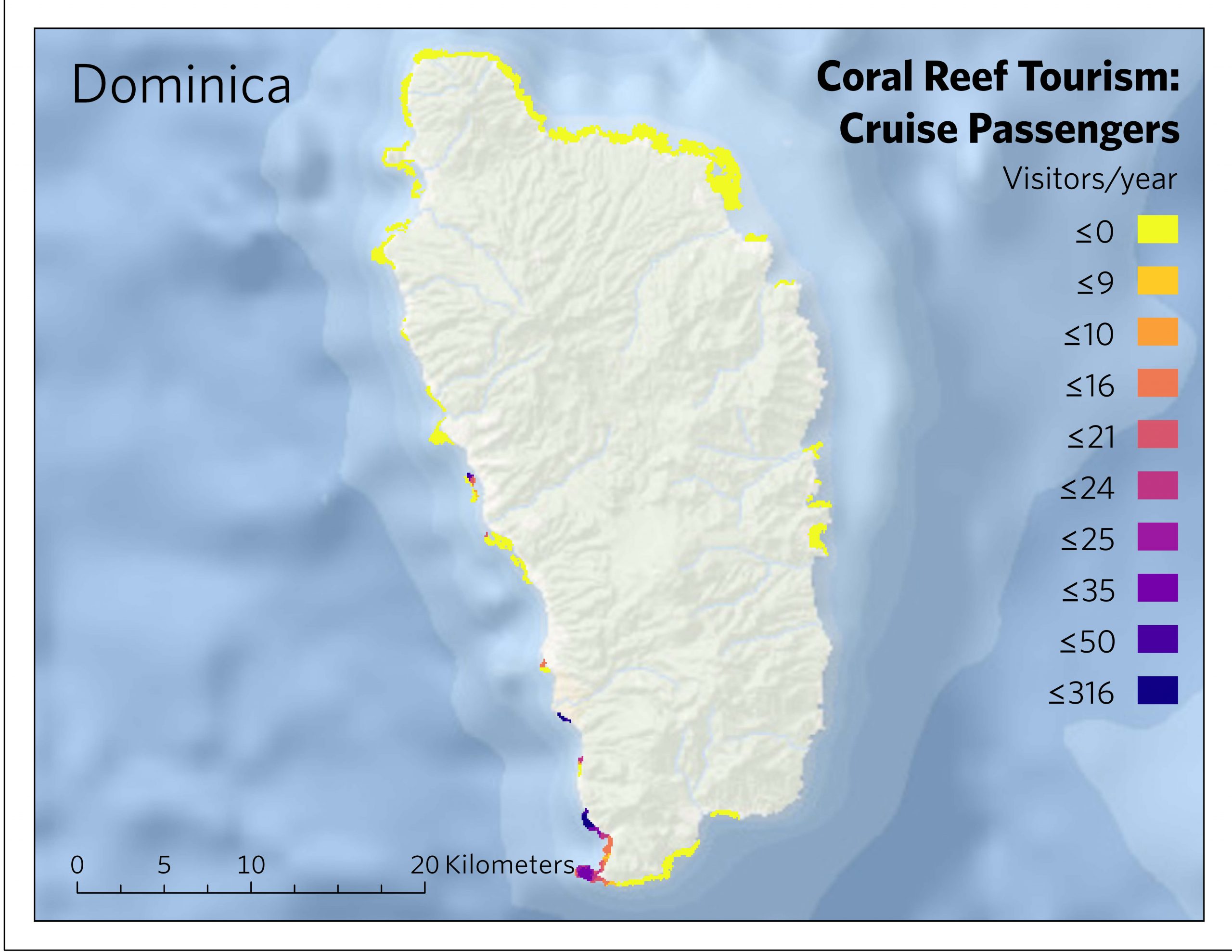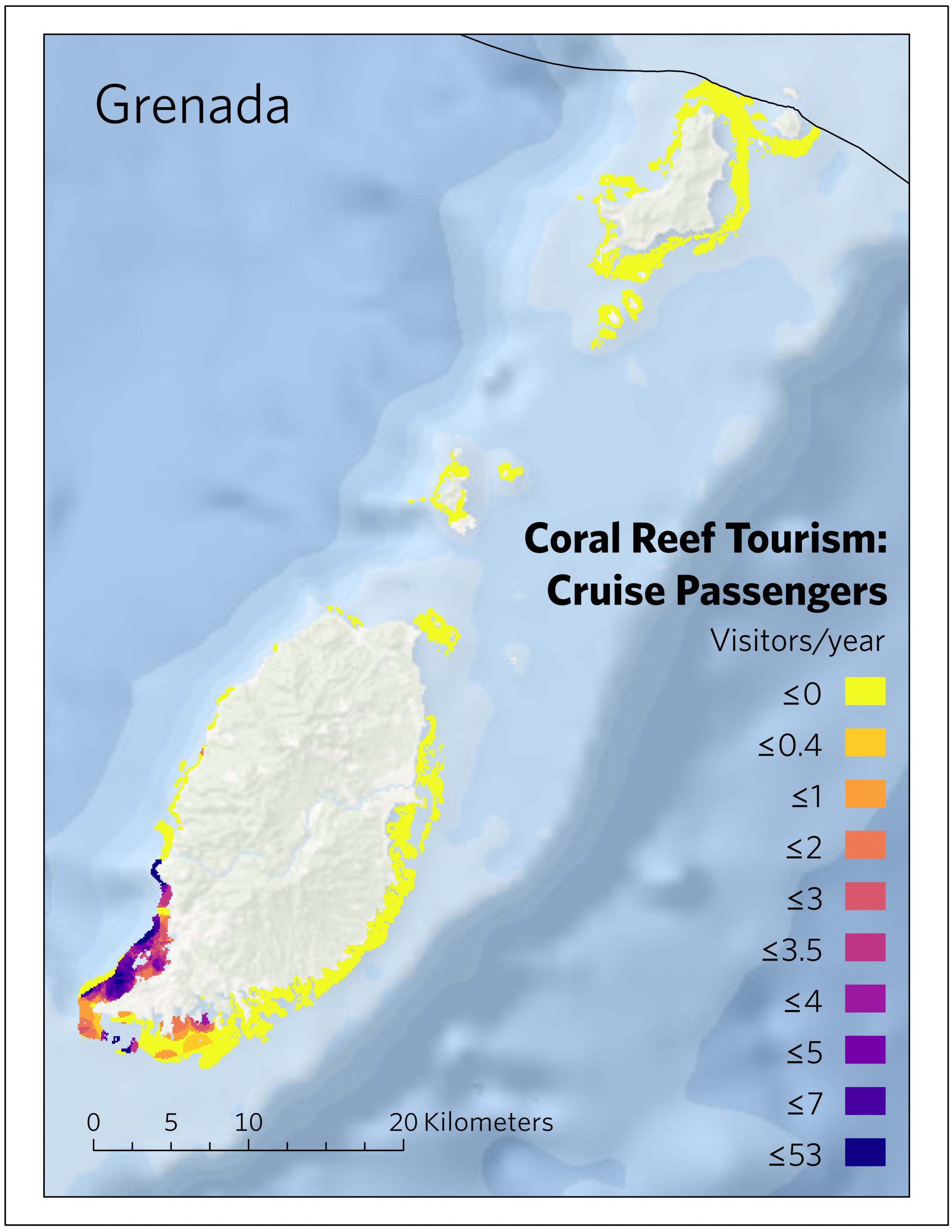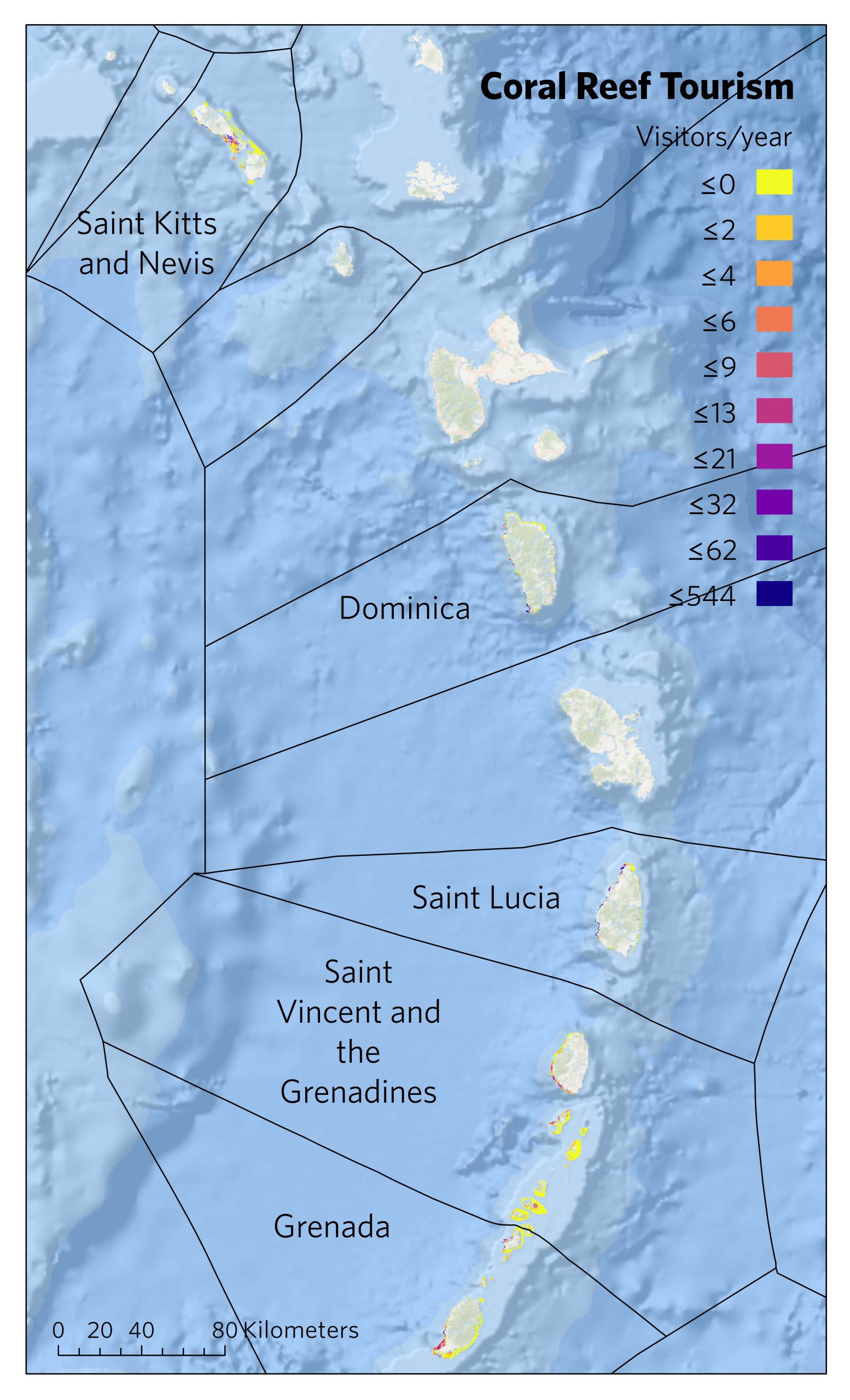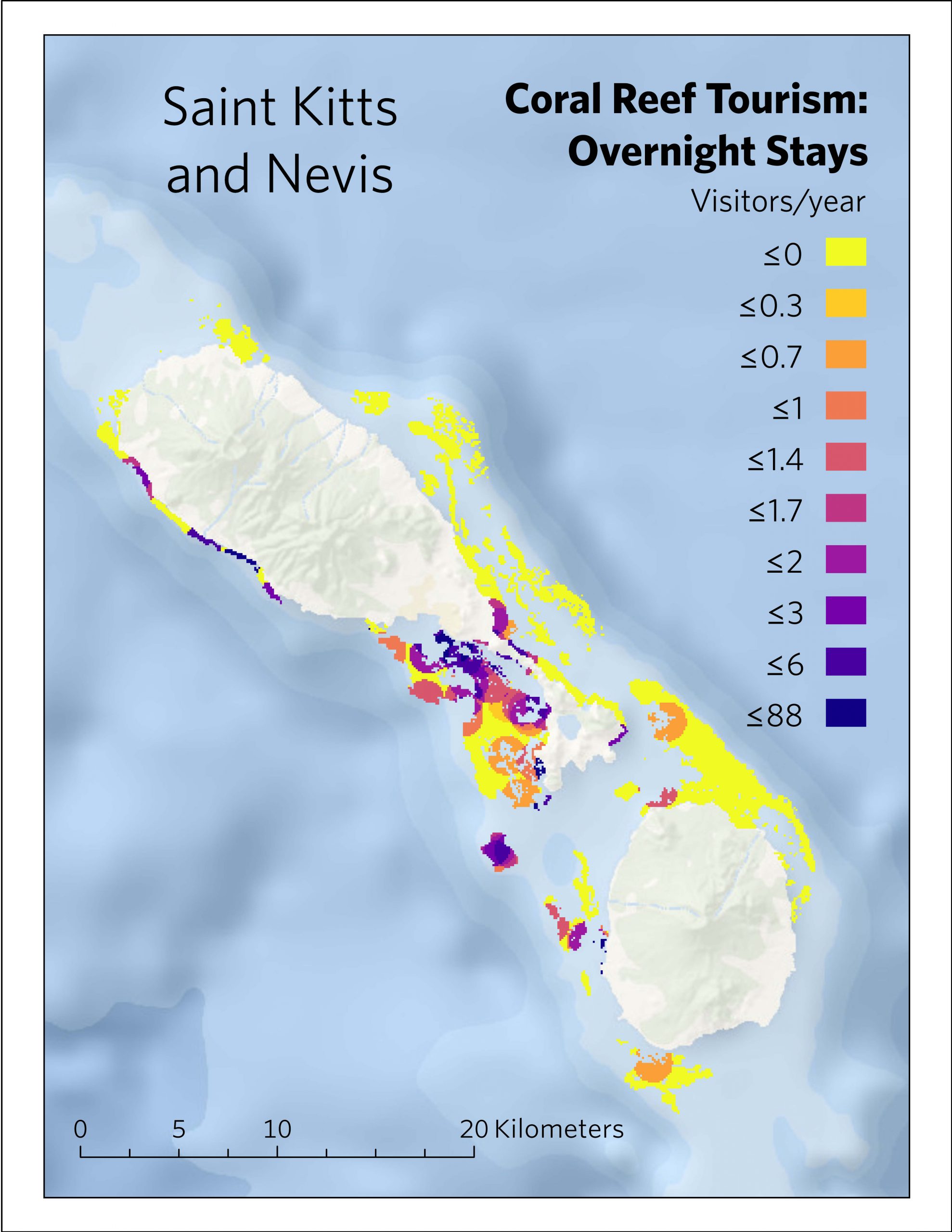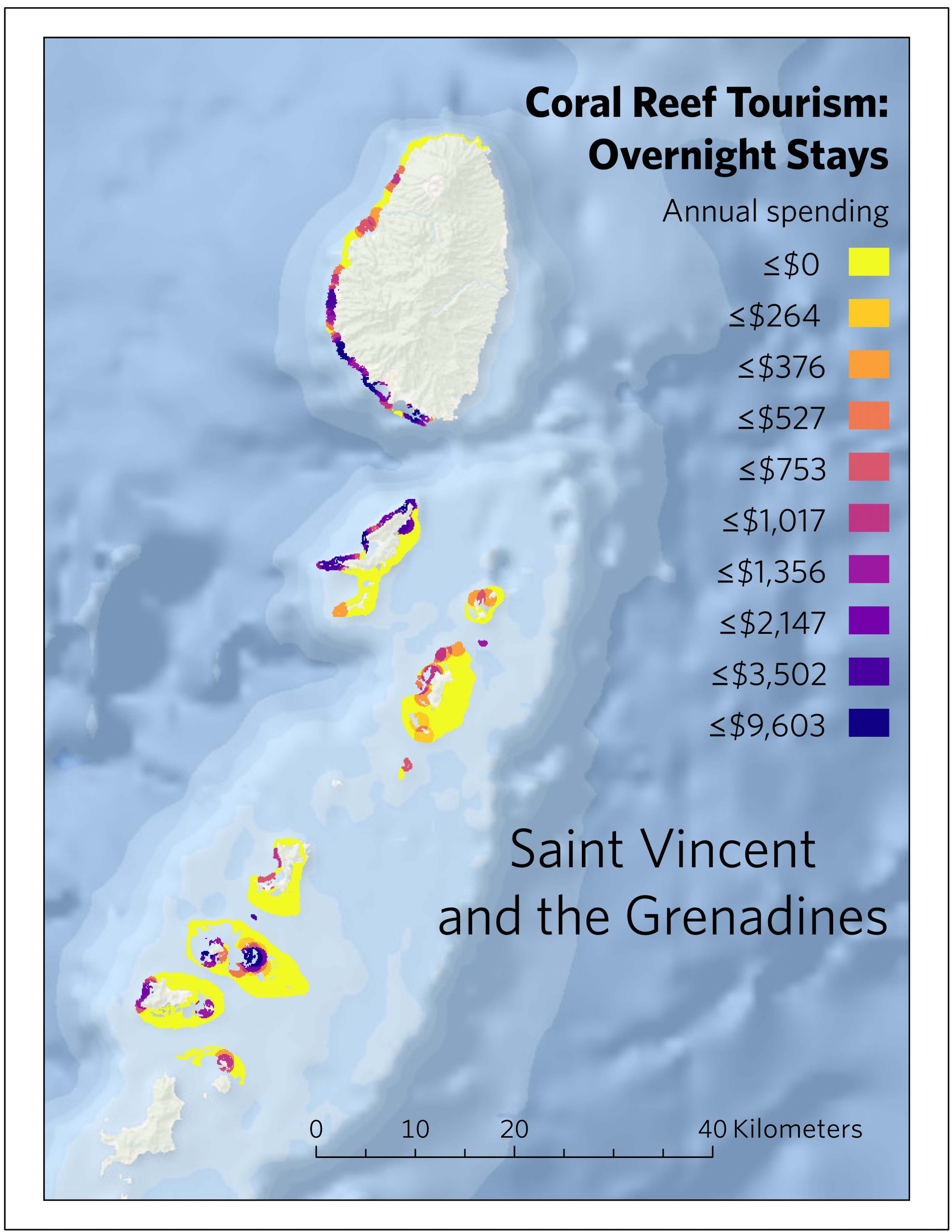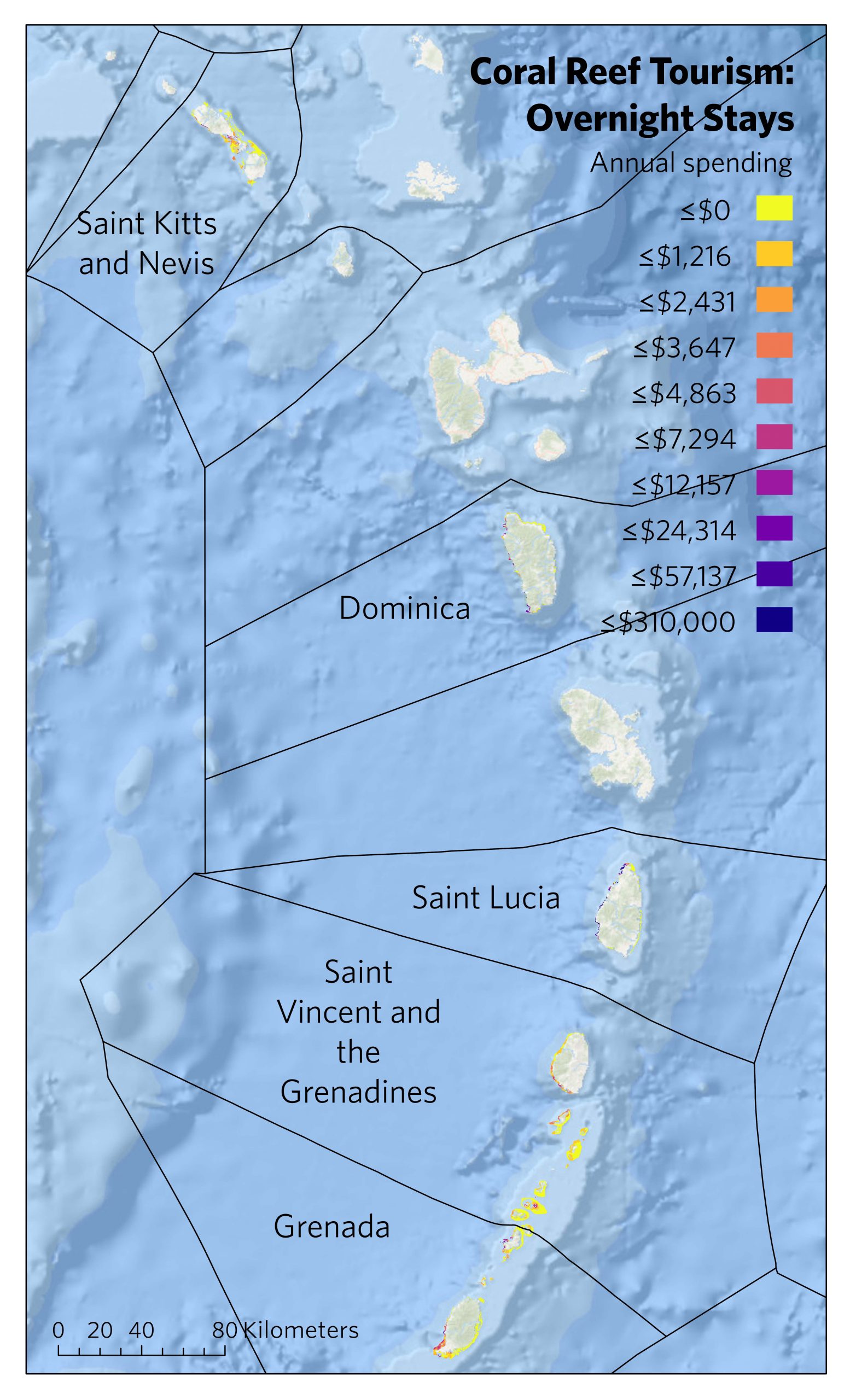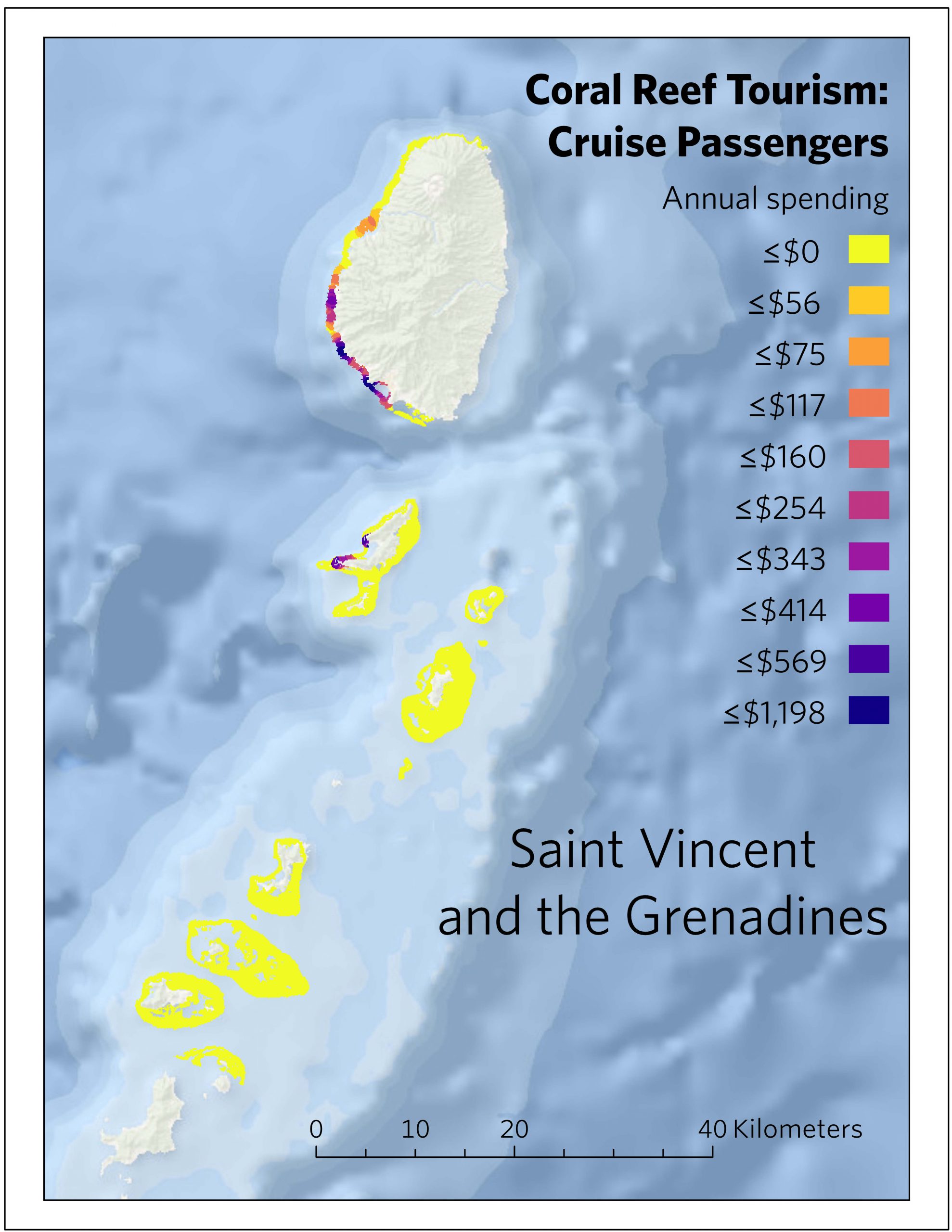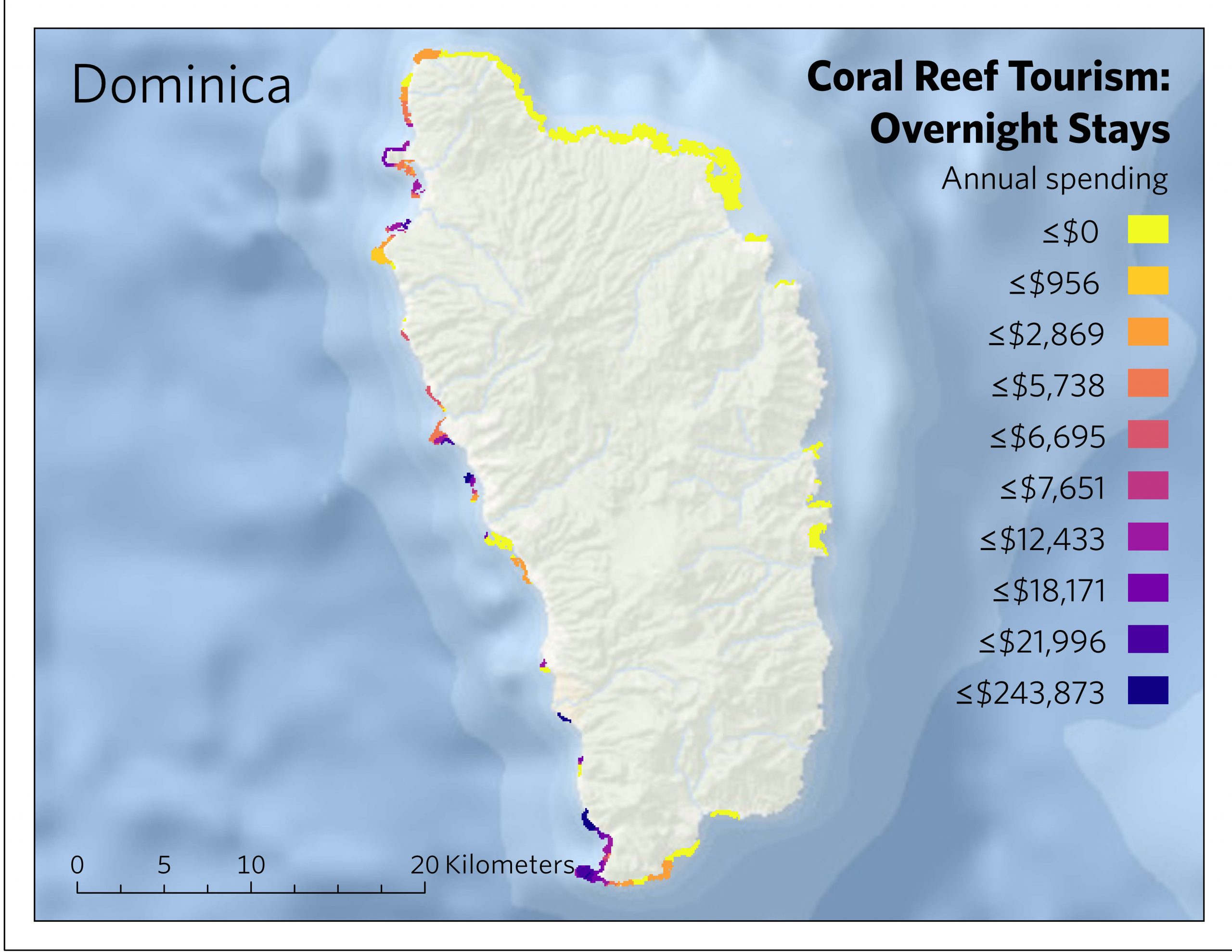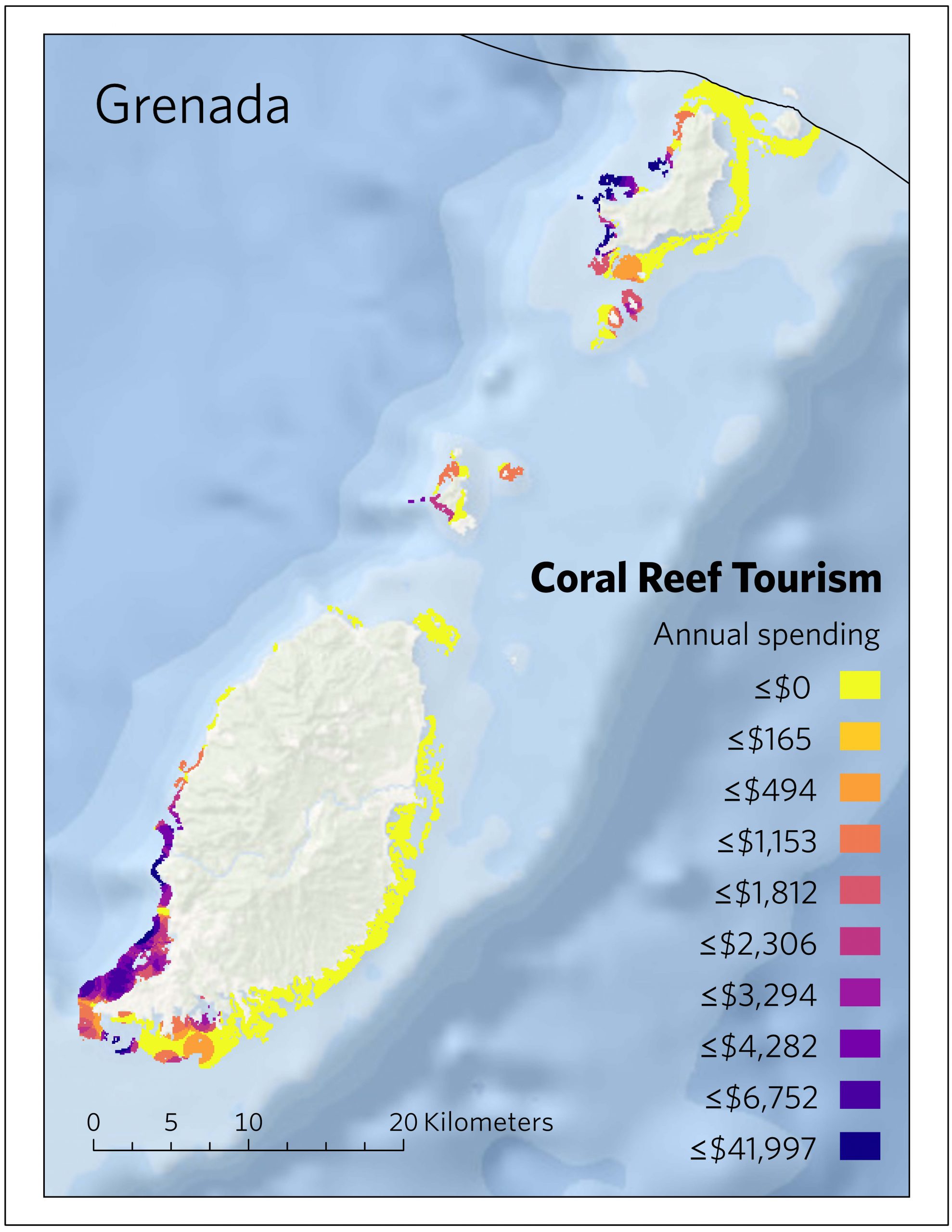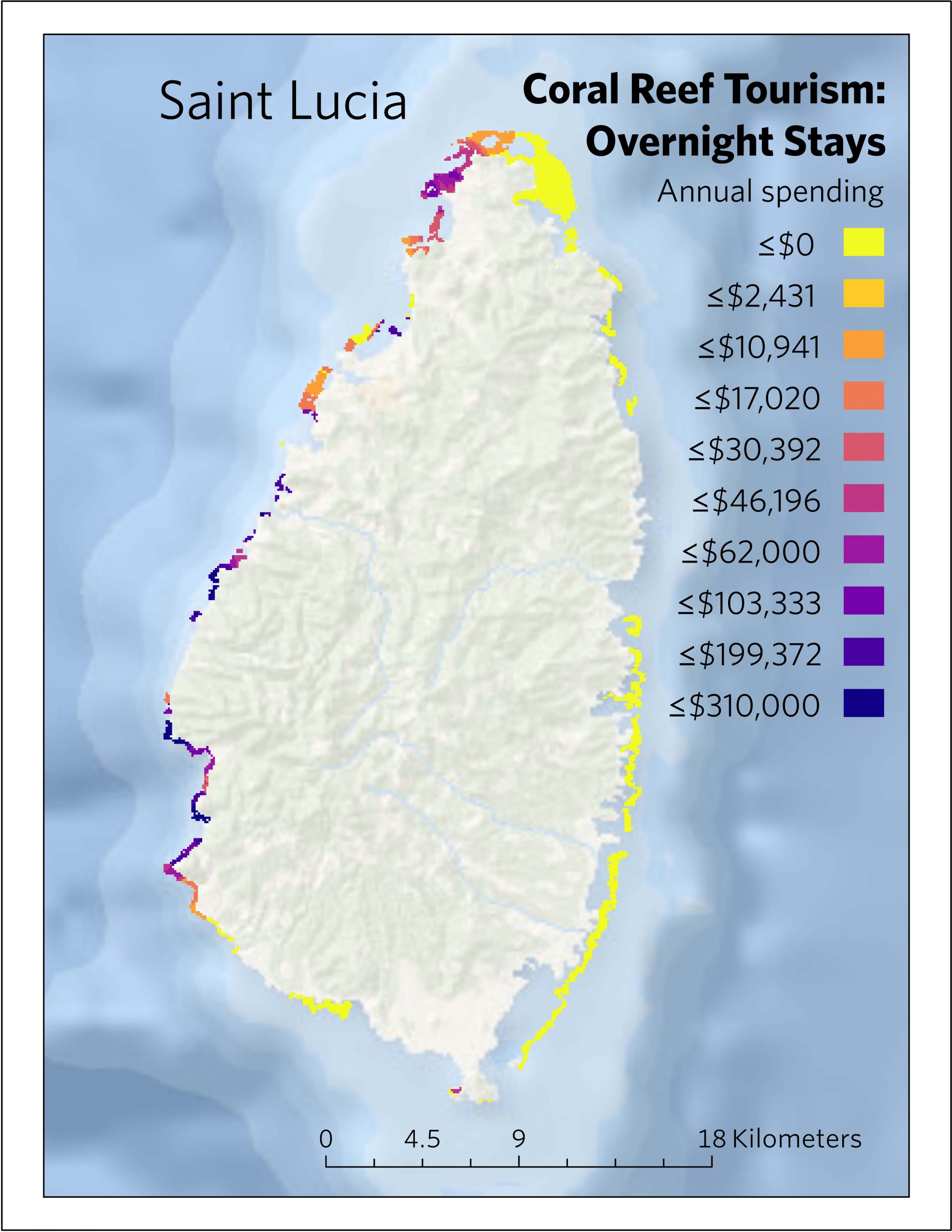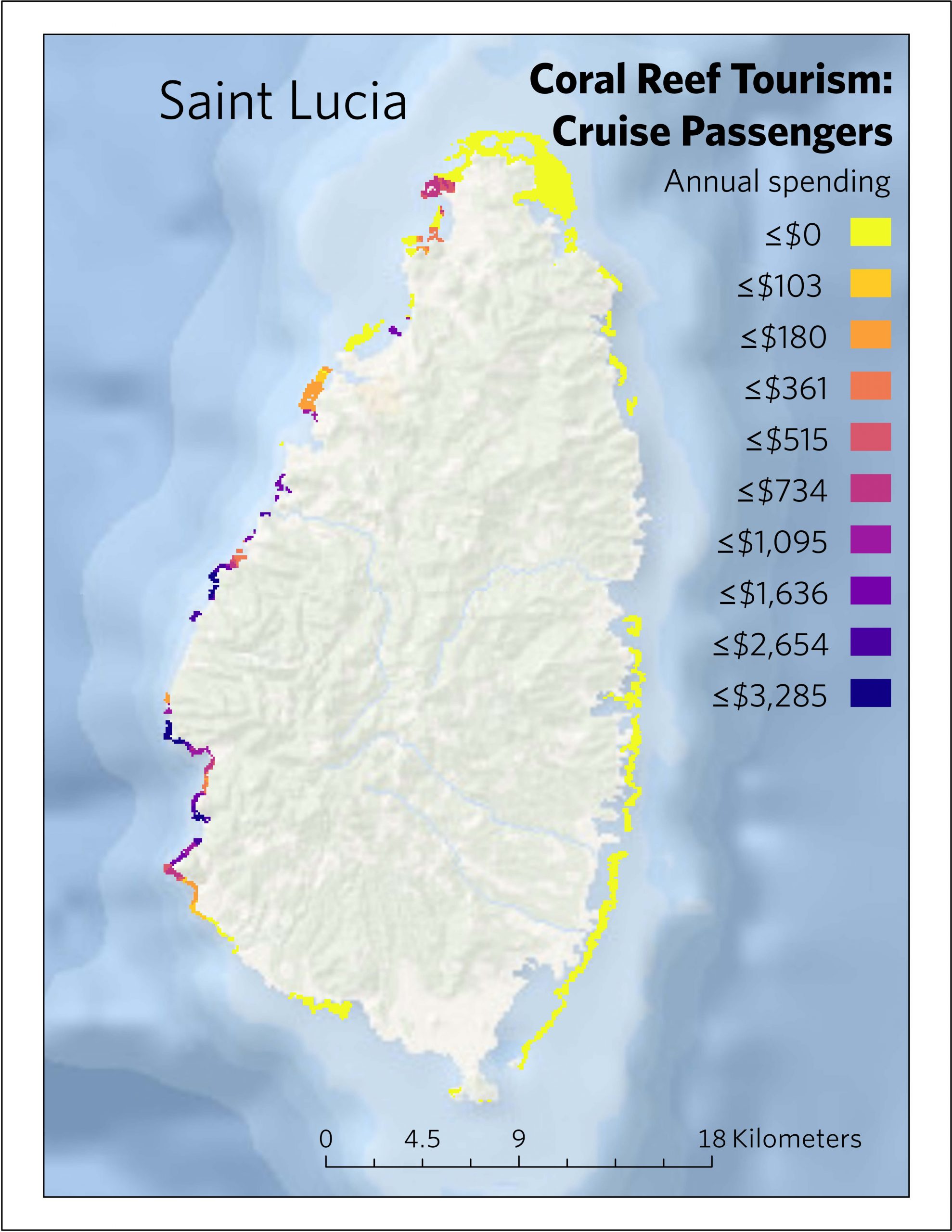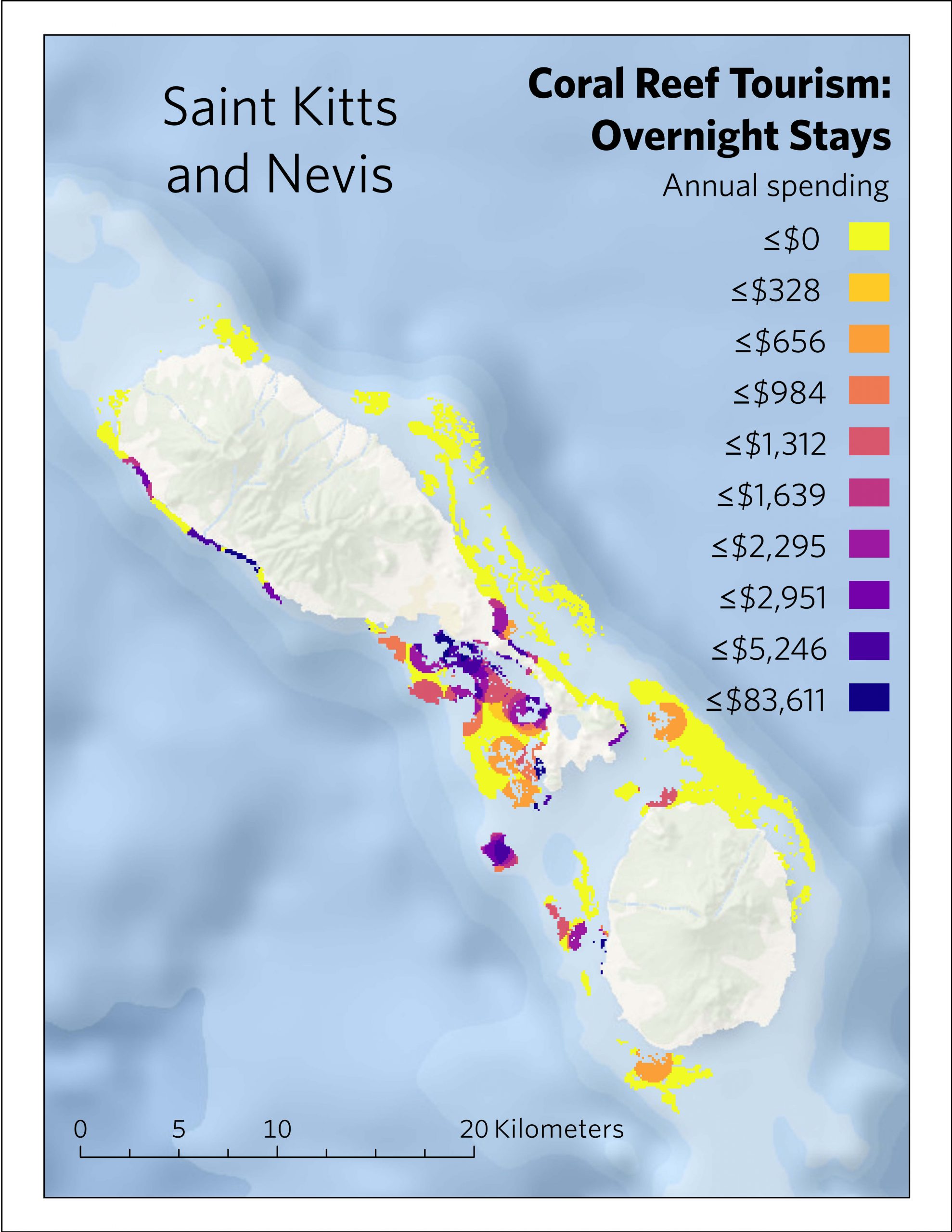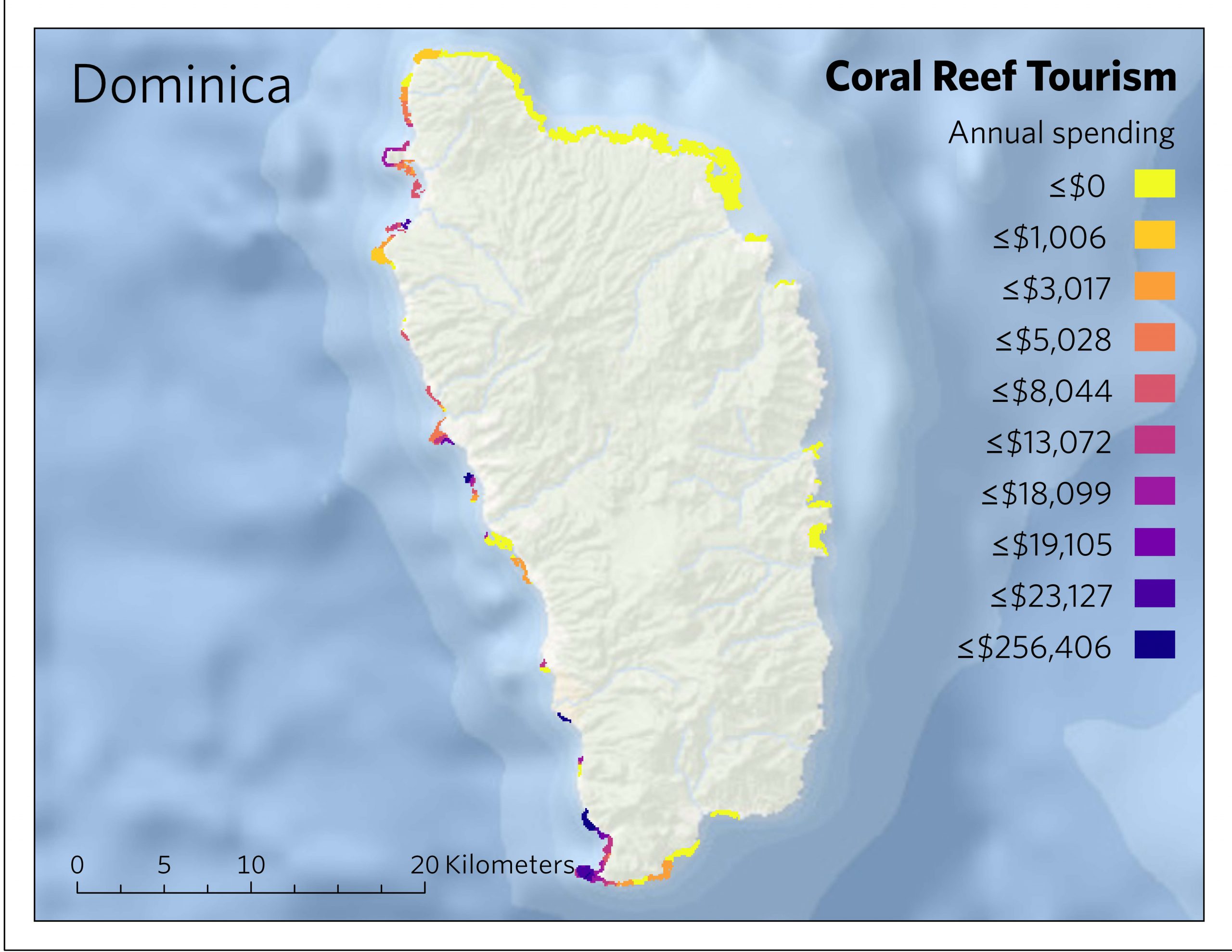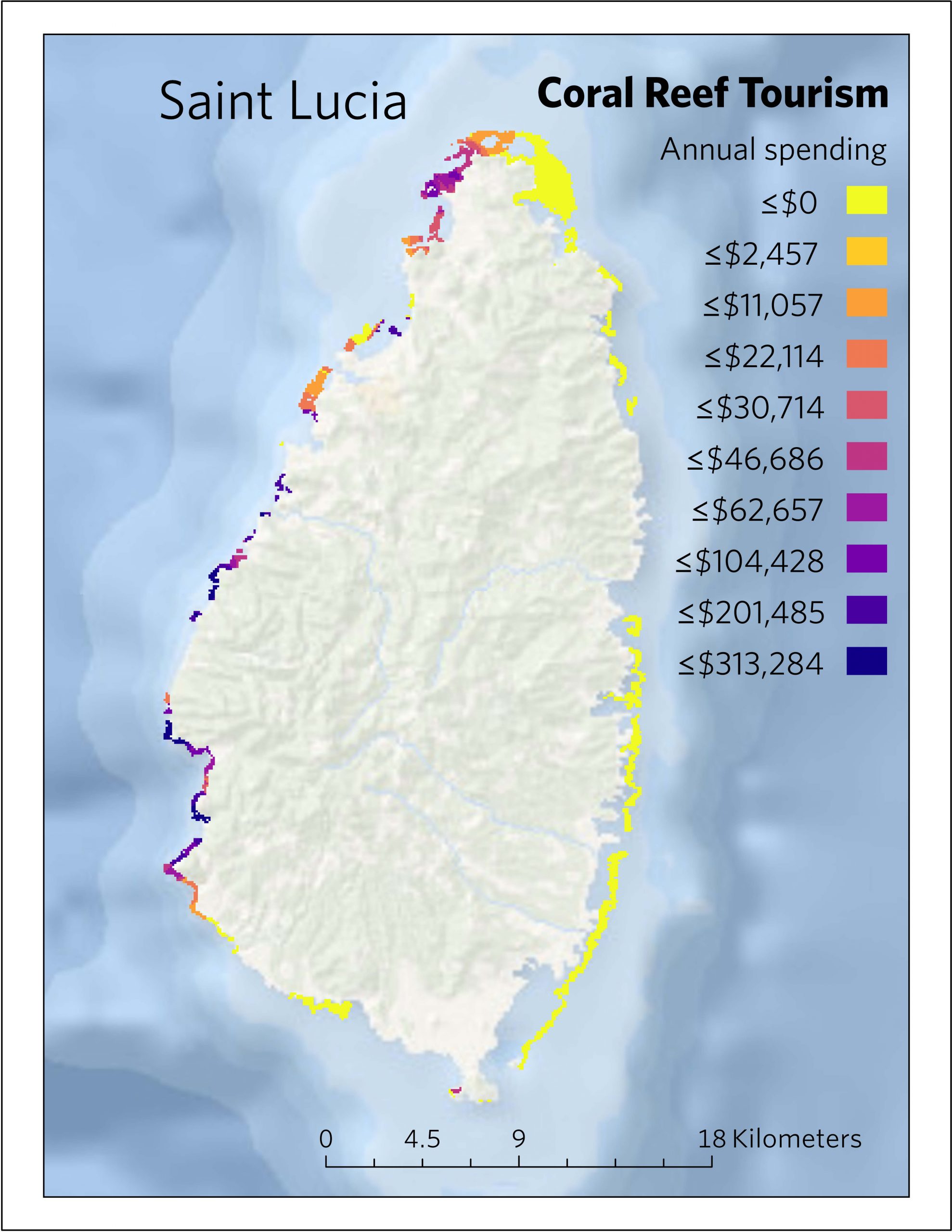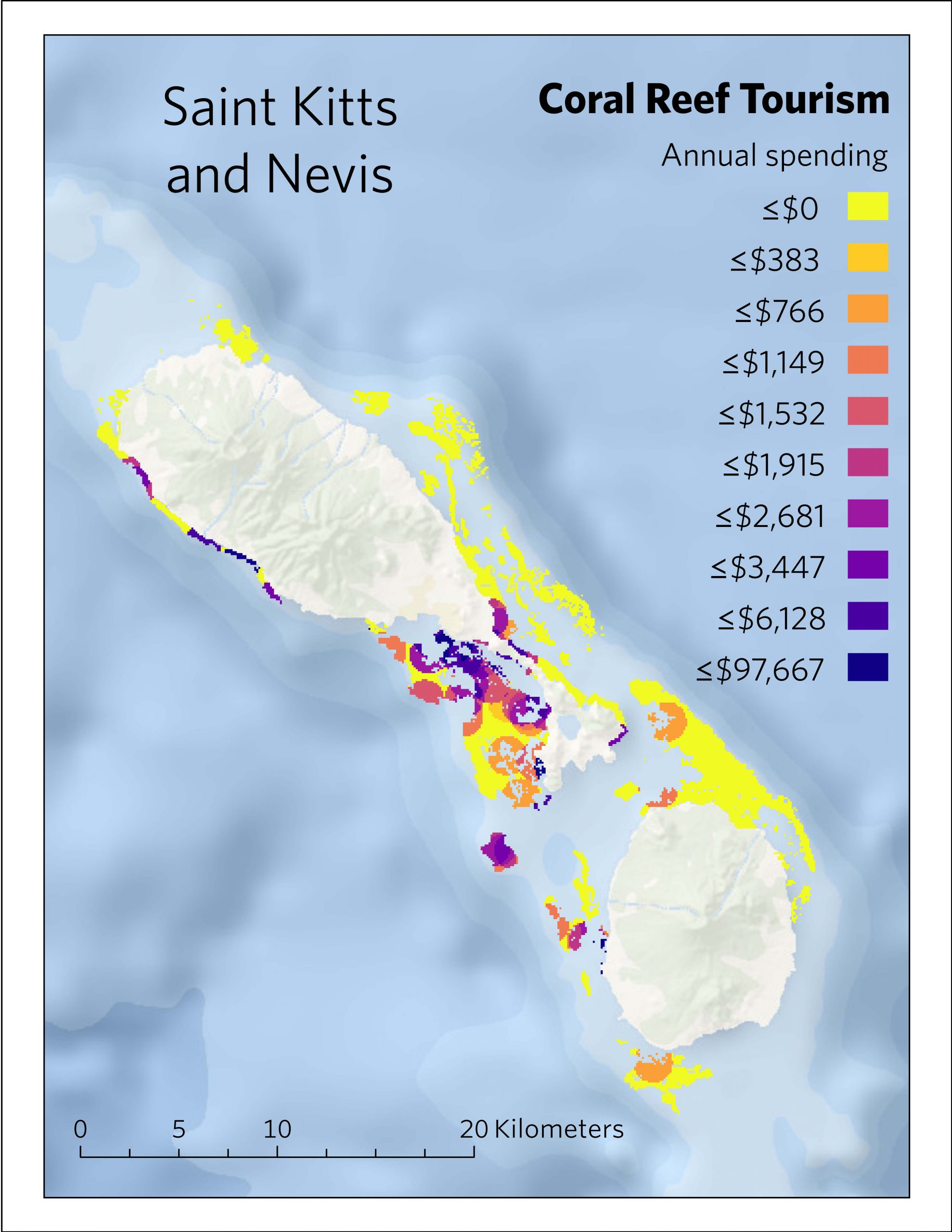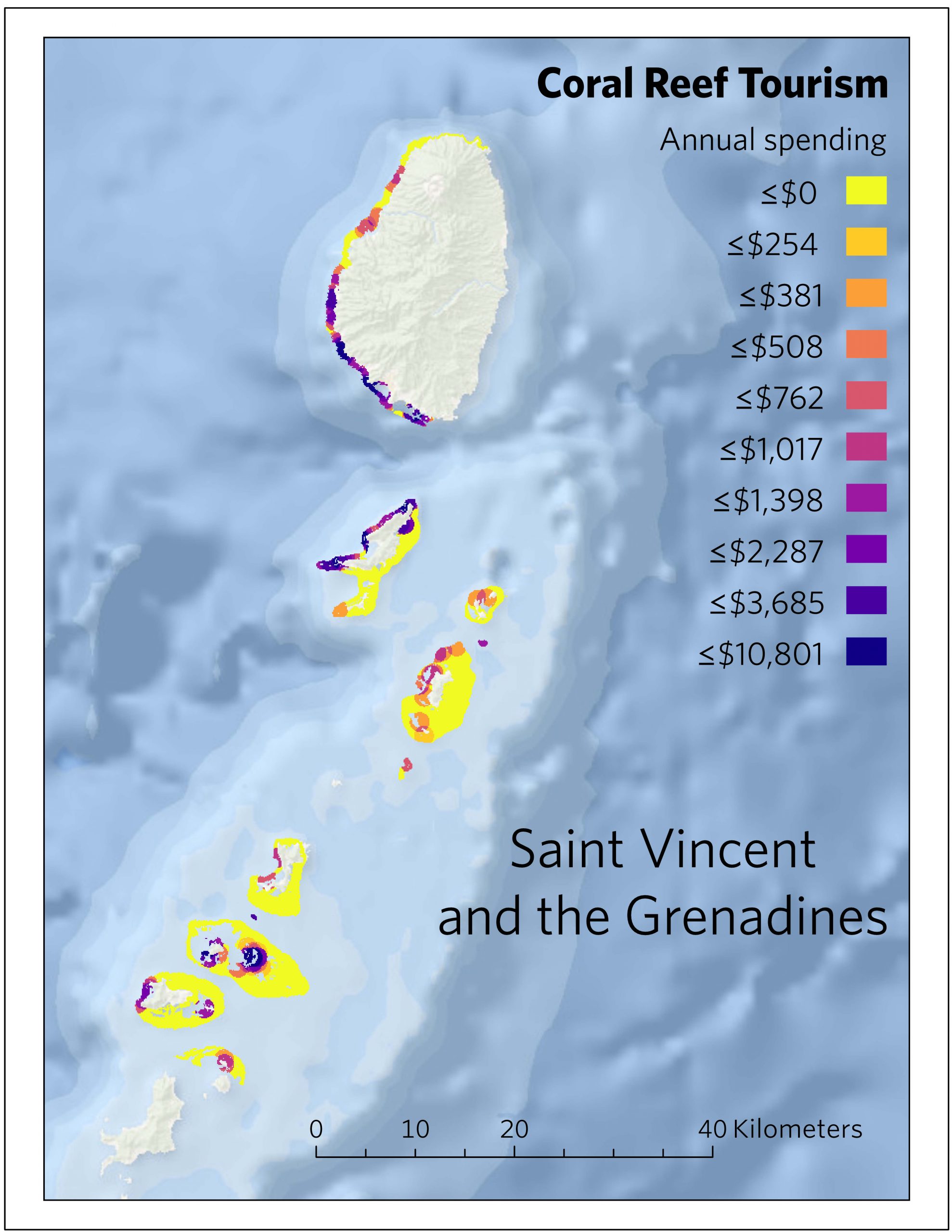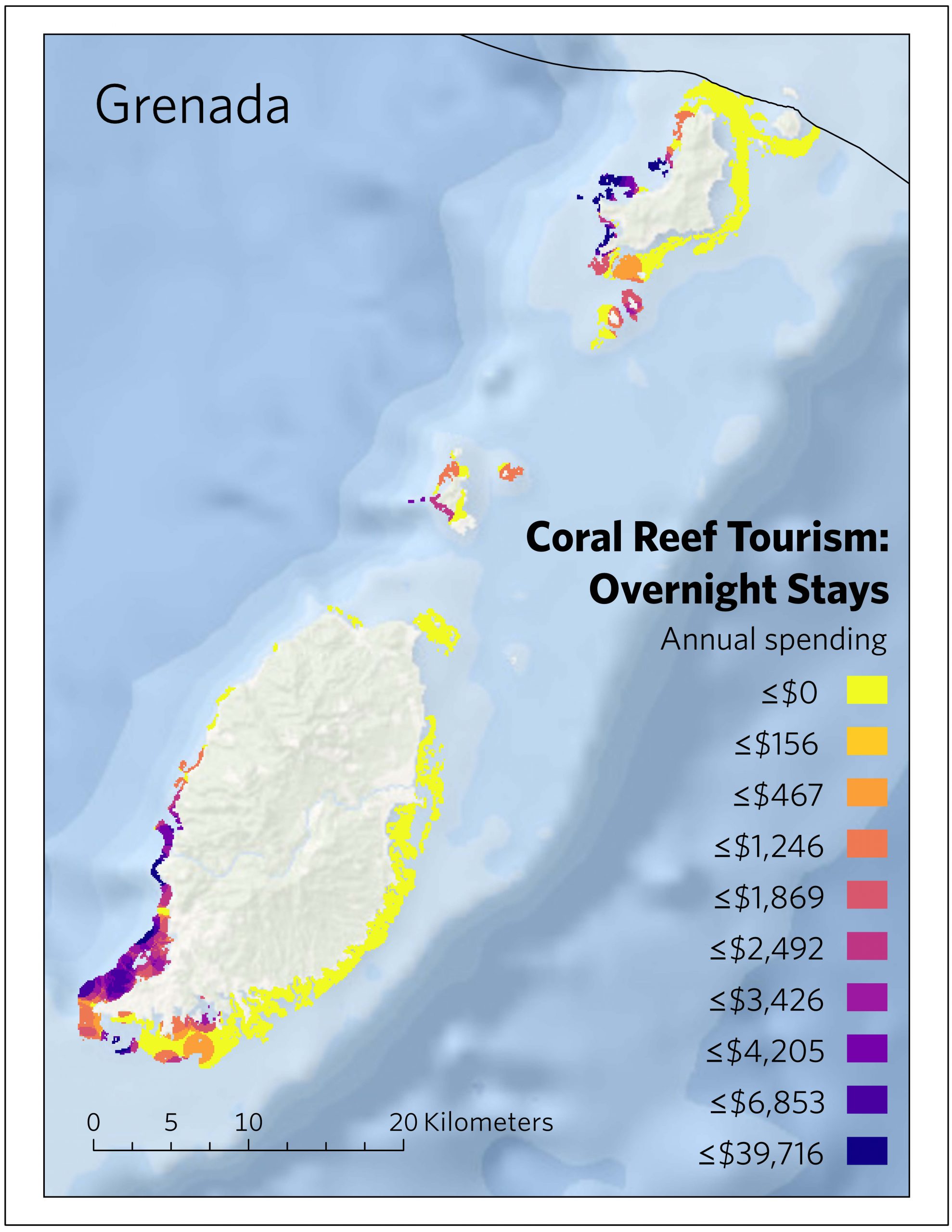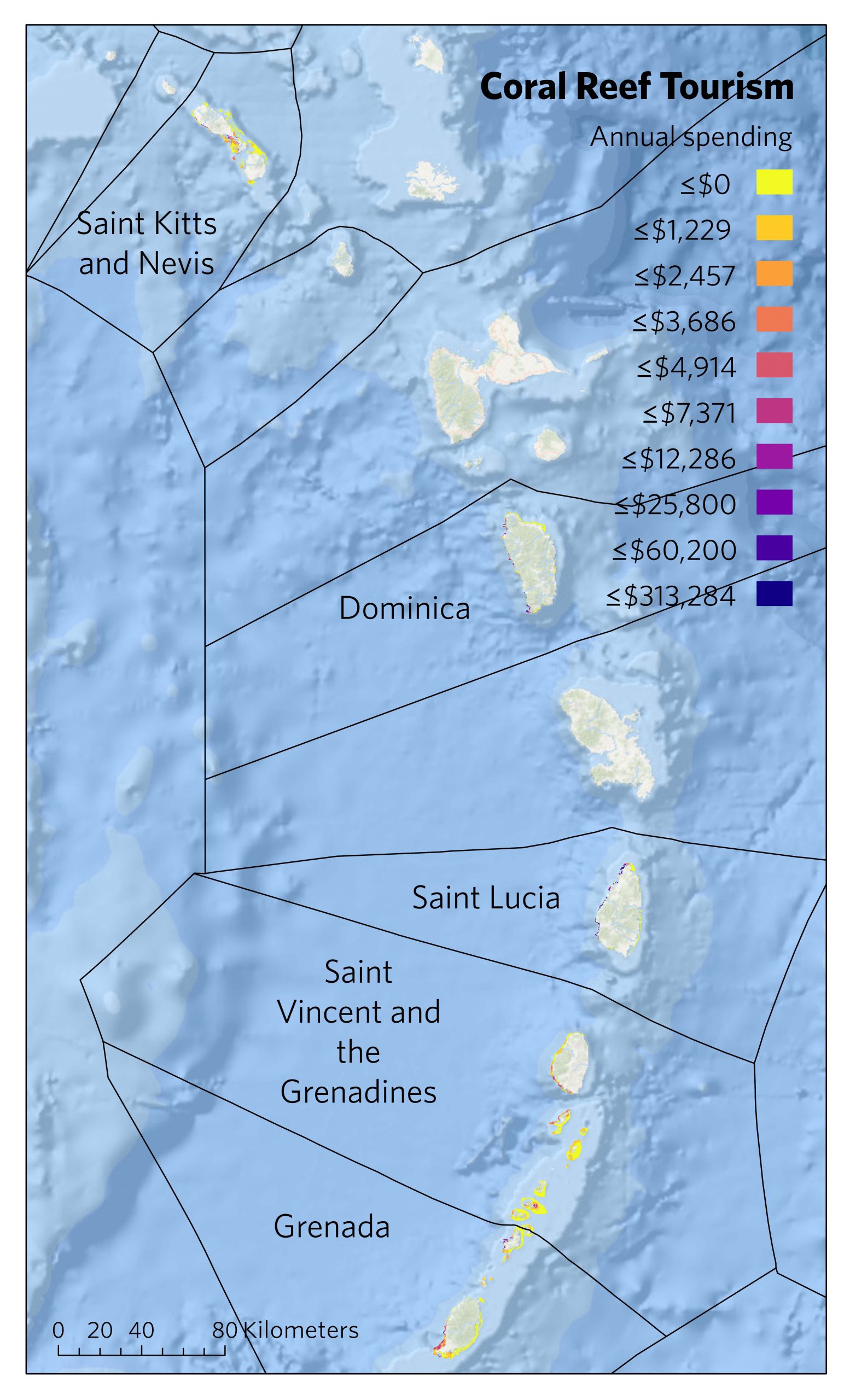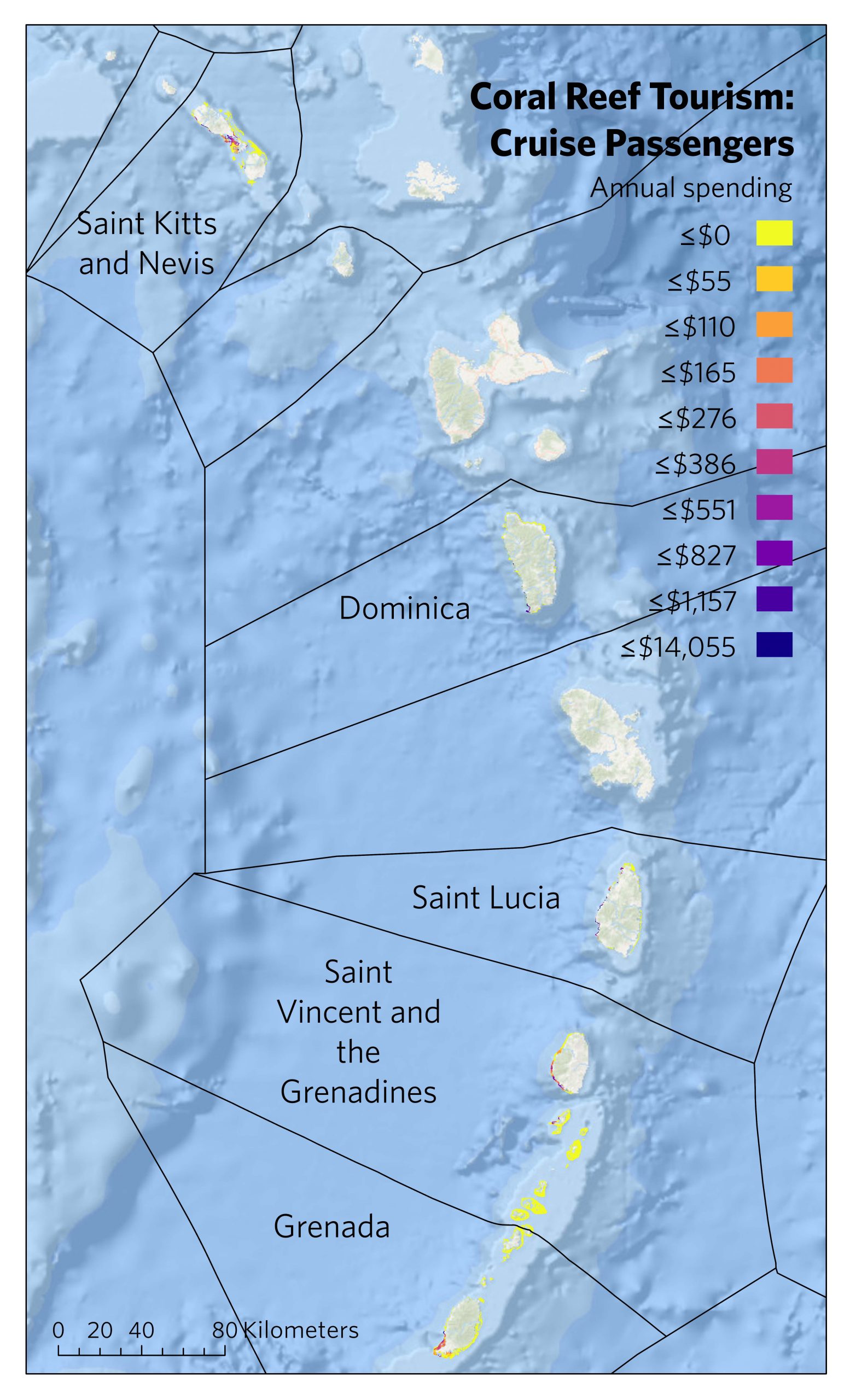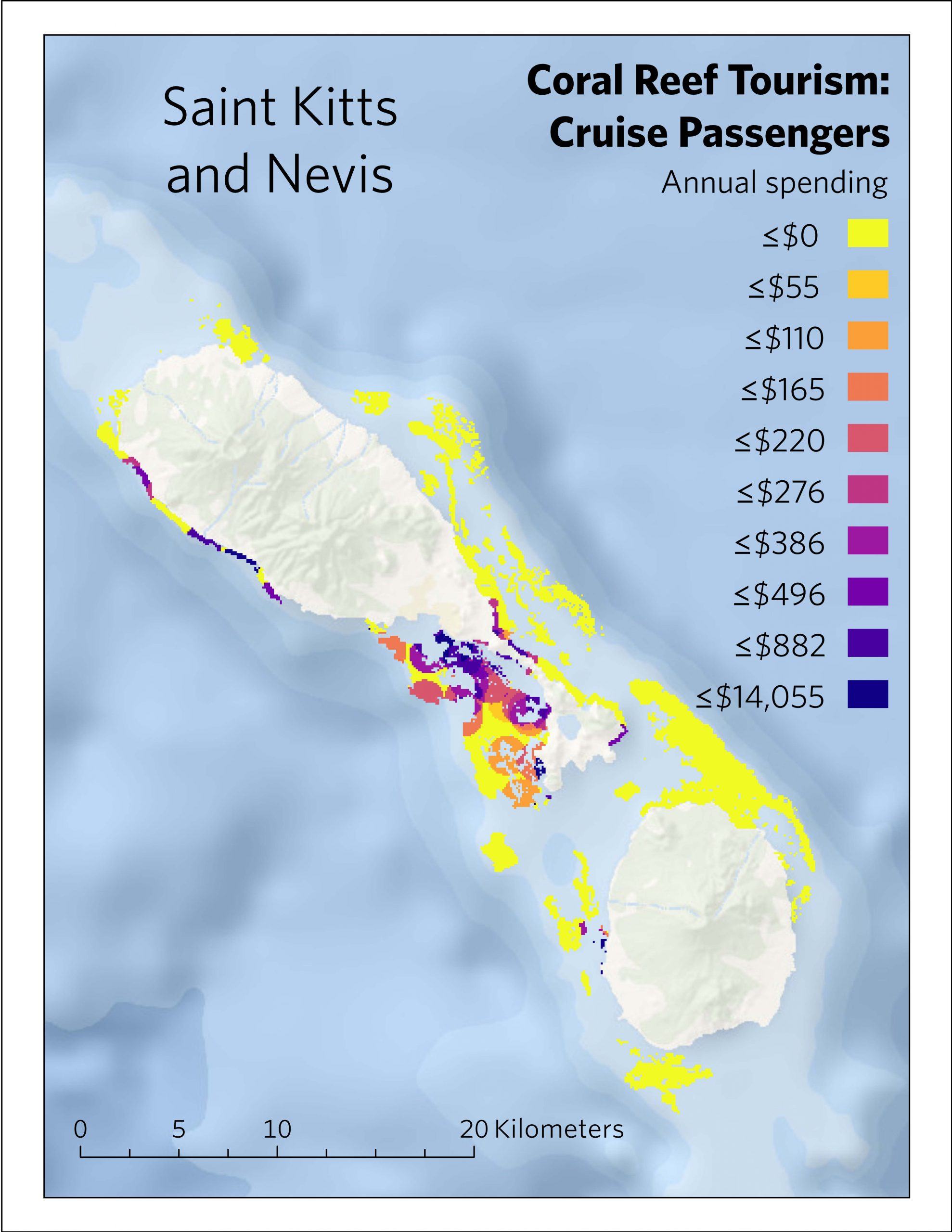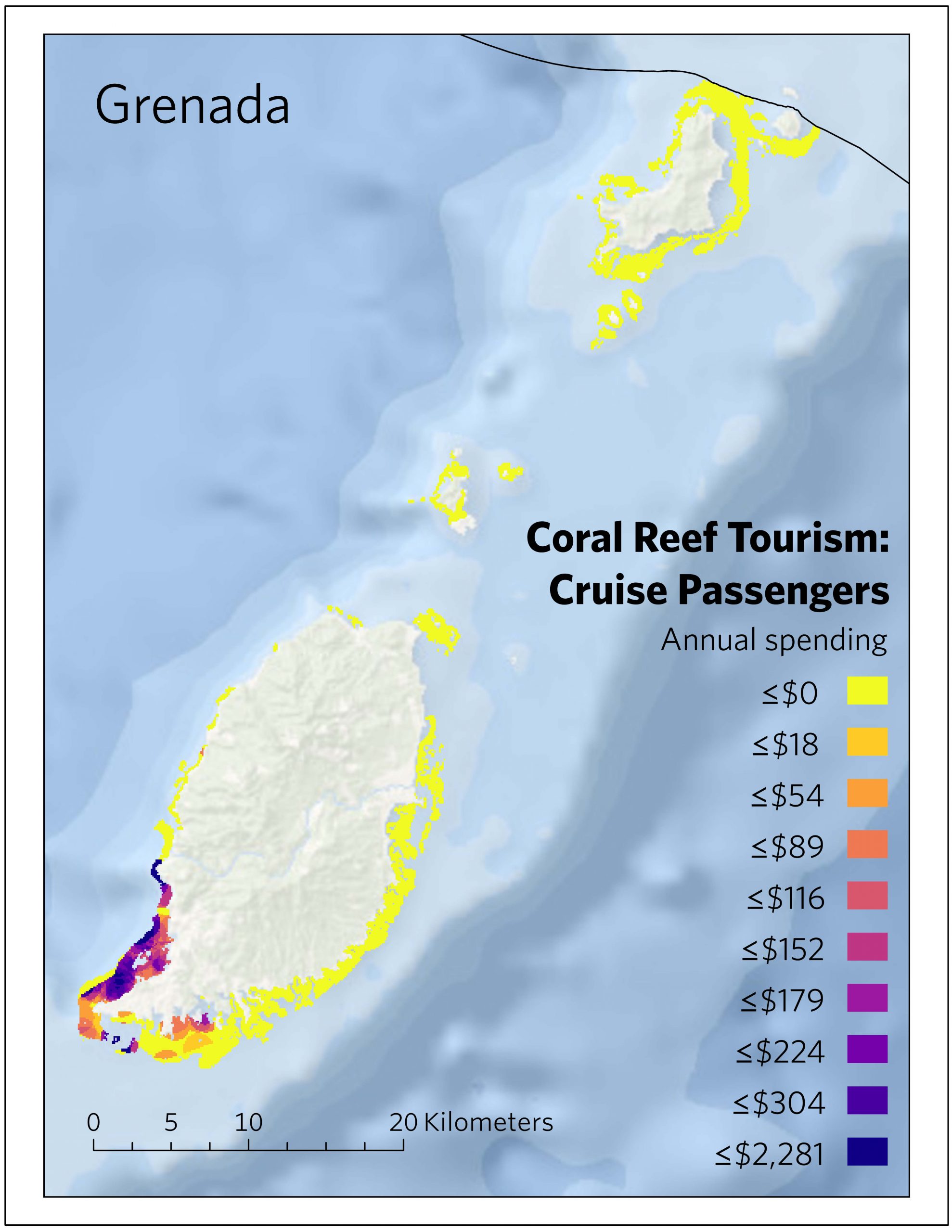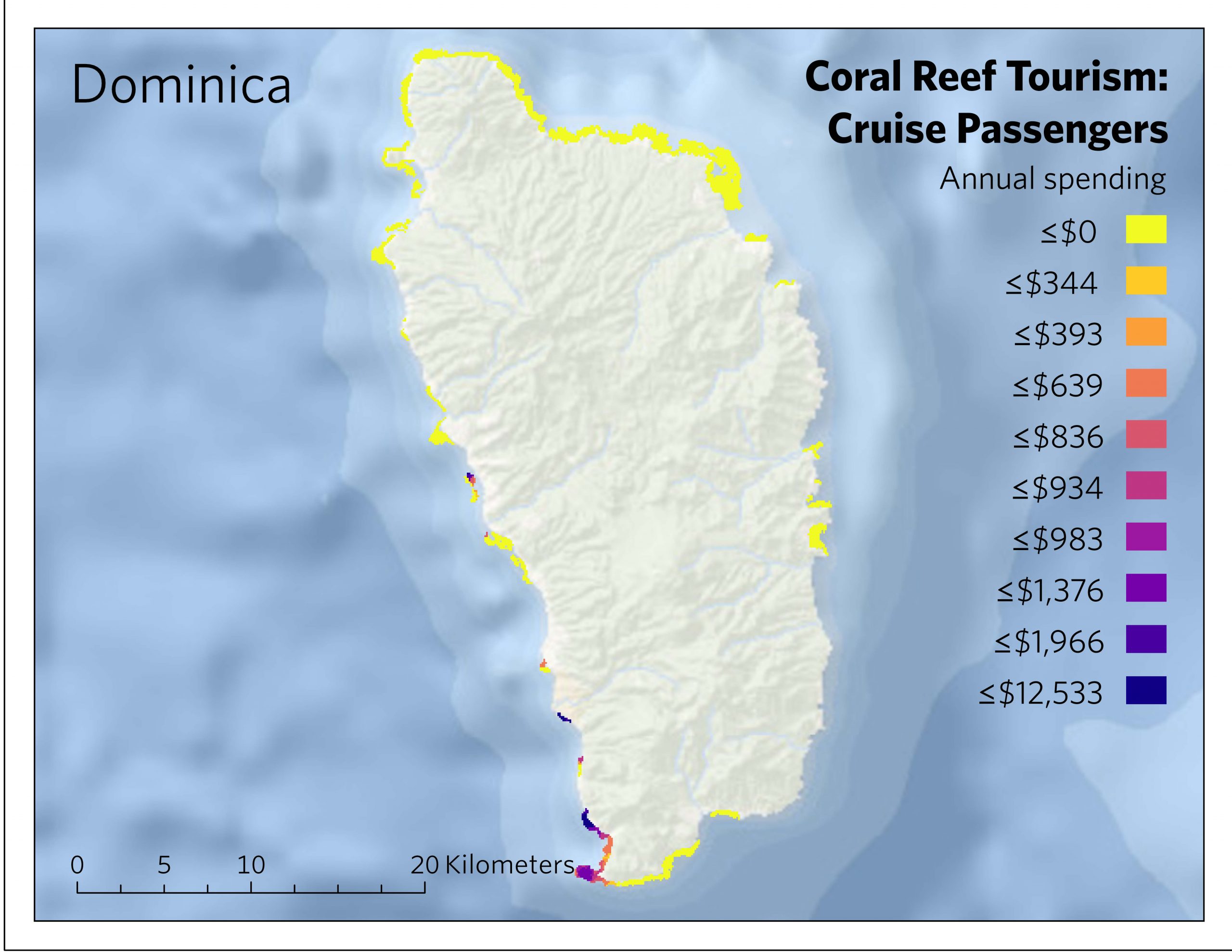The Caribbean is highly dependent on coastal and marine tourism activities, many of them associated with coral reefs, either directly (“on-reef” e.g., SCUBA, snorkeling) or indirectly (e.g., beach-related activities, access to fresh seafood). While previous studies have quantified and mapped the value of coral reefs to tourism at the Global scale, this project downscaled these analyses to the regional and local levels by integrating emerging artificial intelligence and machine learning (AI/ML) technologies, incorporating data from local sources, and engaging with stakeholders who suggested additional refinements to the methodologies.
Across the five countries evaluated under this project, tourism expenditure directly linked to on-reef activities is estimated at US$118 million annually. This can also be expressed in terms of visitor numbers, with 83,000 overnight visitors and 60,000 cruise visitors choosing these islands for their on-reef activities.
Maps of paddle sport activities (e.g., kayaking, stand-up paddleboarding) also provide supplementary information about the influence of coastal habitats on tourism activities in the region.
This is the first time that these components of nature-based tourism associated with coral reefs have been so extensively mapped and analysed at these resolutions. We believe that the results are of considerable use for understanding the value of coral reefs and coastal ecosystems at local scales, applicable to management, that they will enable a broad range of users from the public to industry to government to better plan and manage both the tourism industry and any other active sectors within the blue economy.
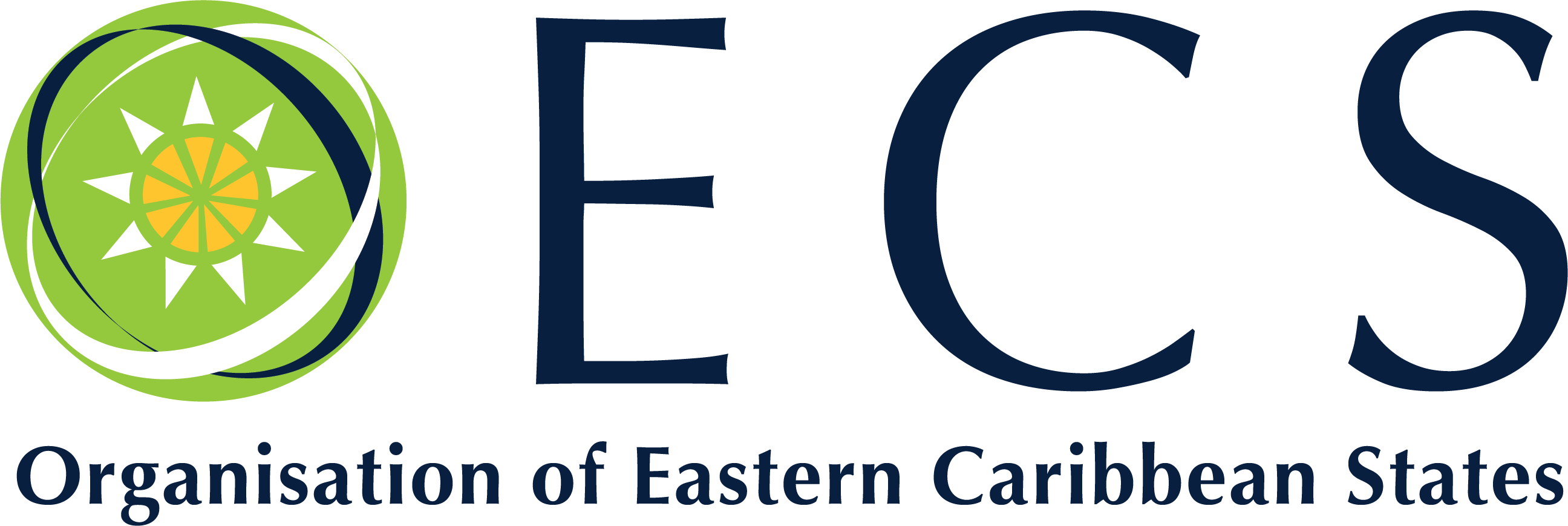
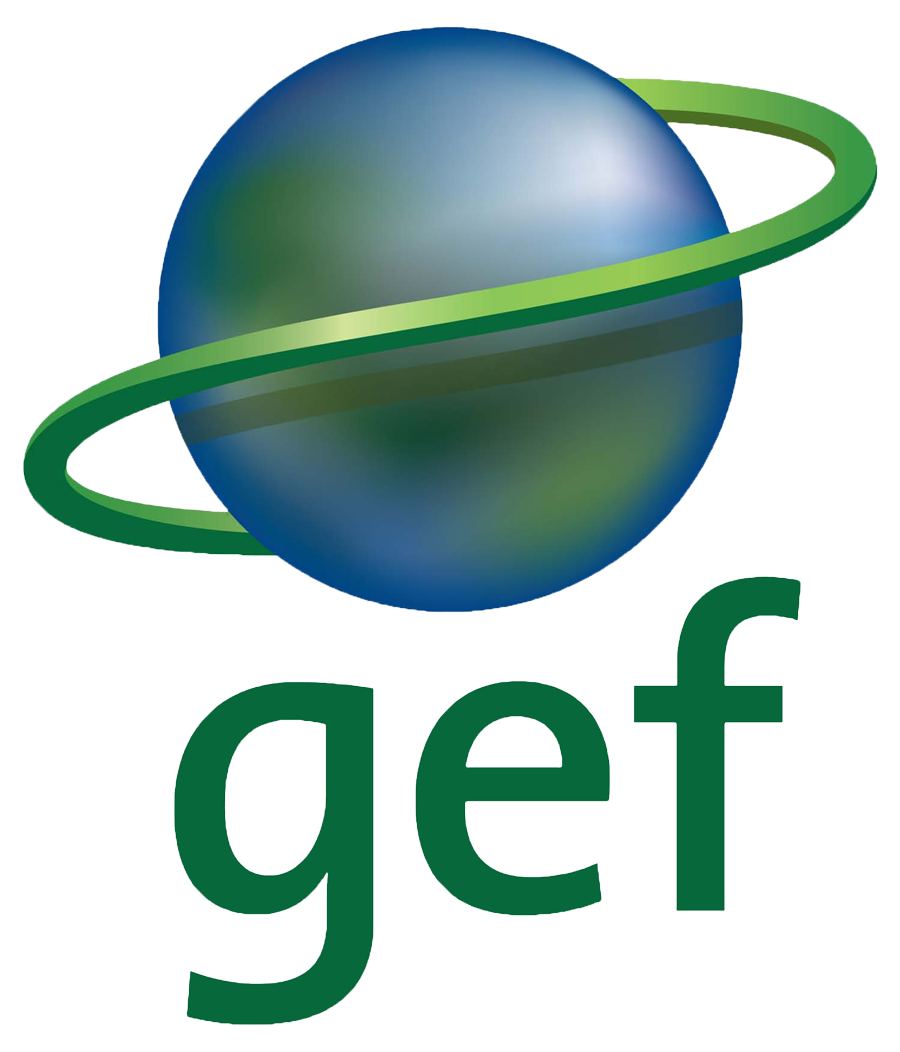

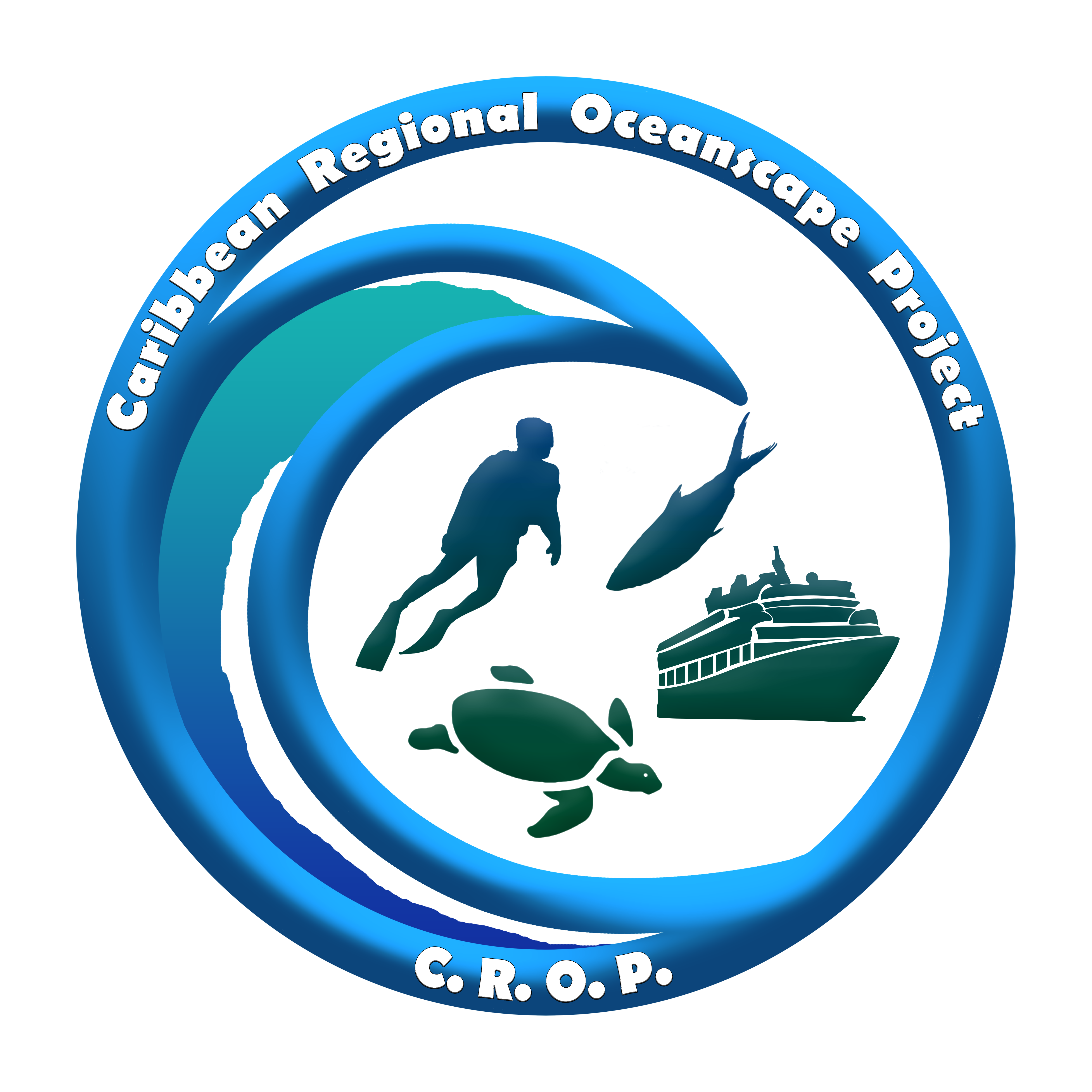
Image Credits: © Jeff Yonover

